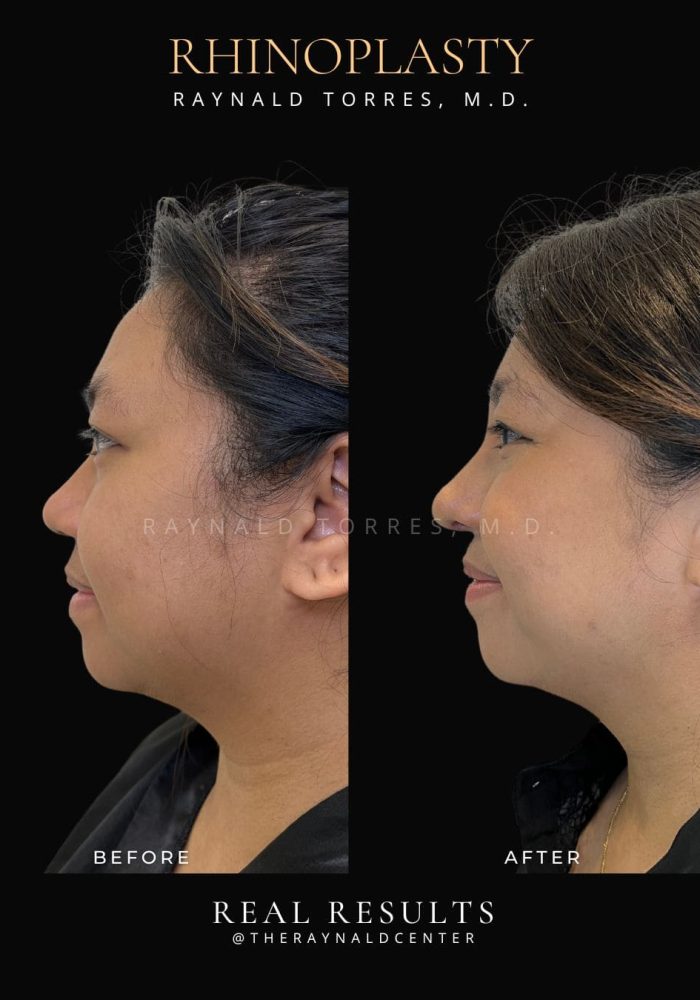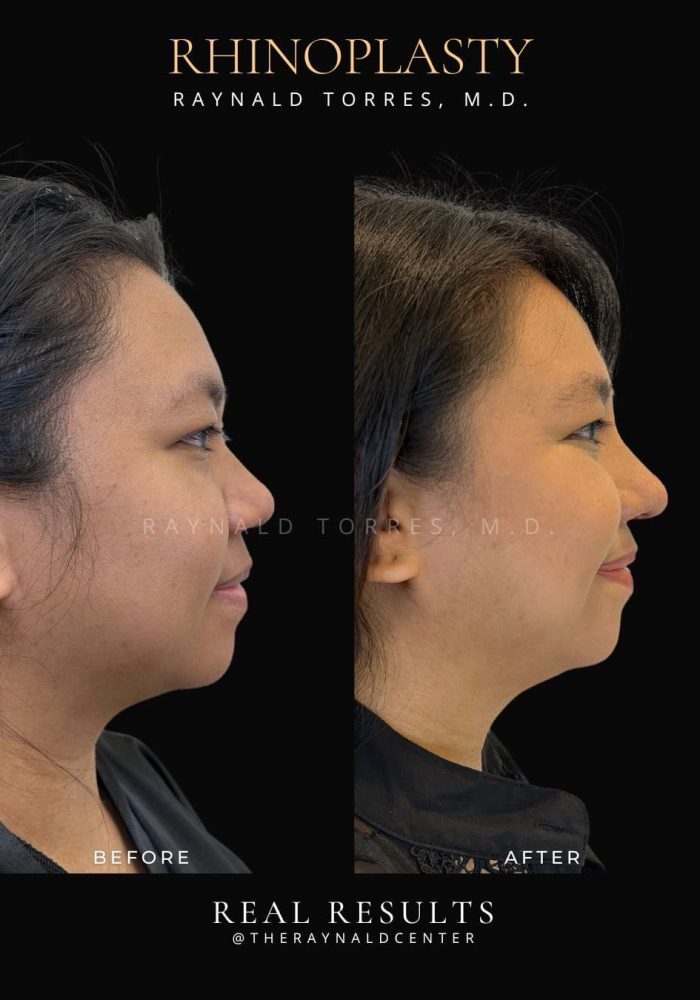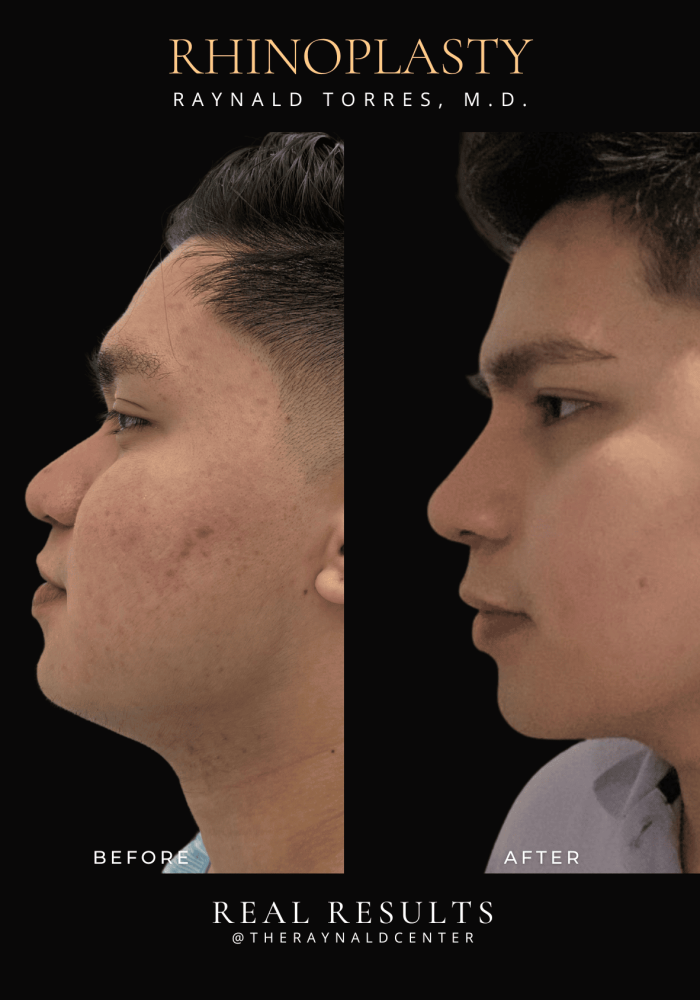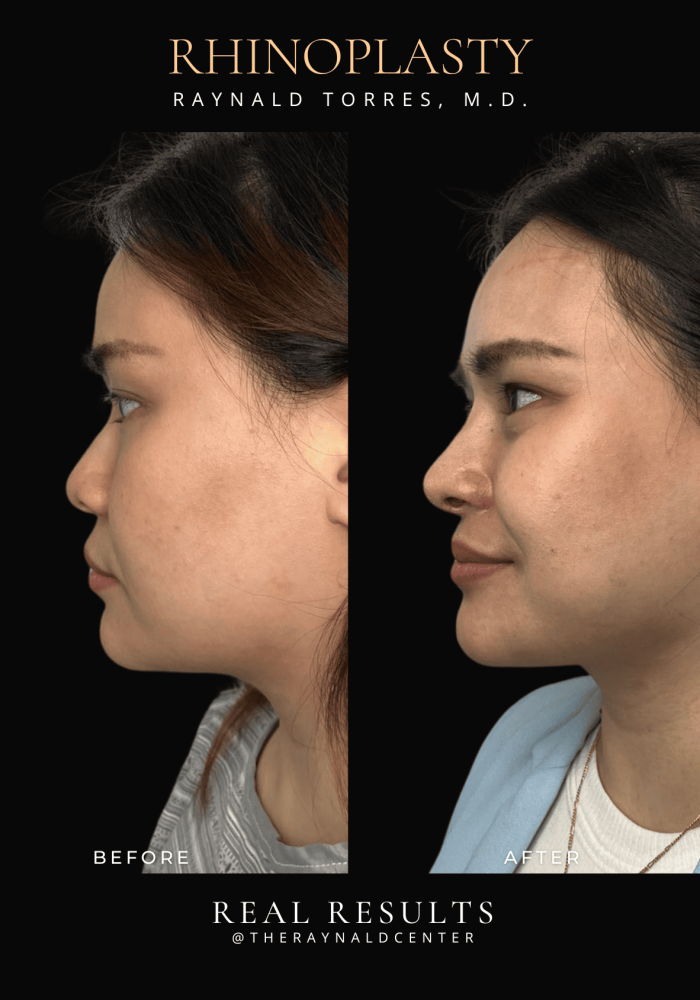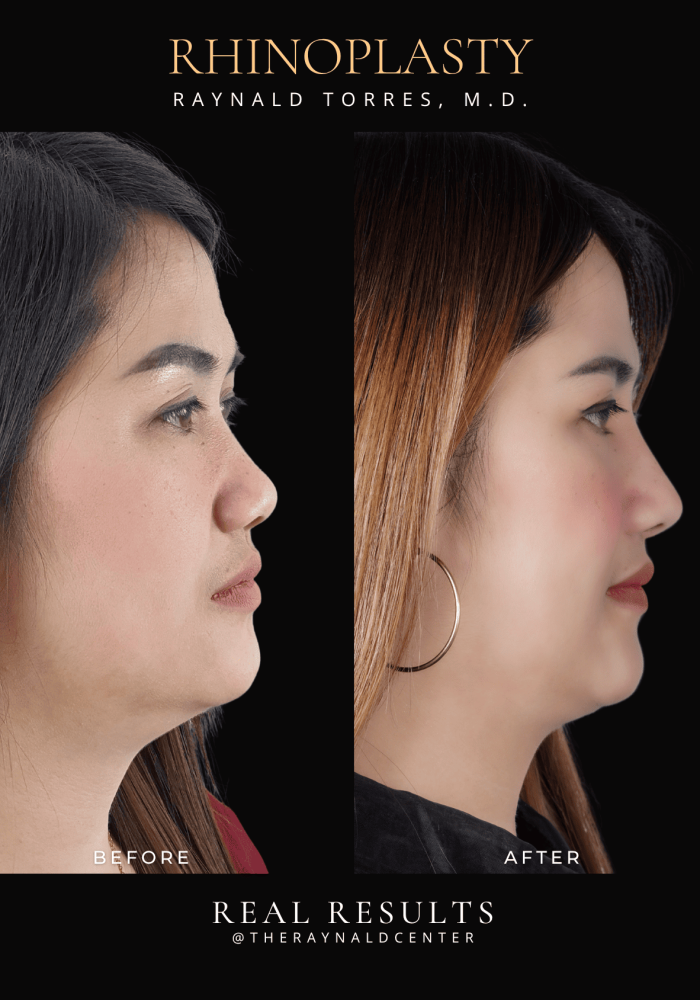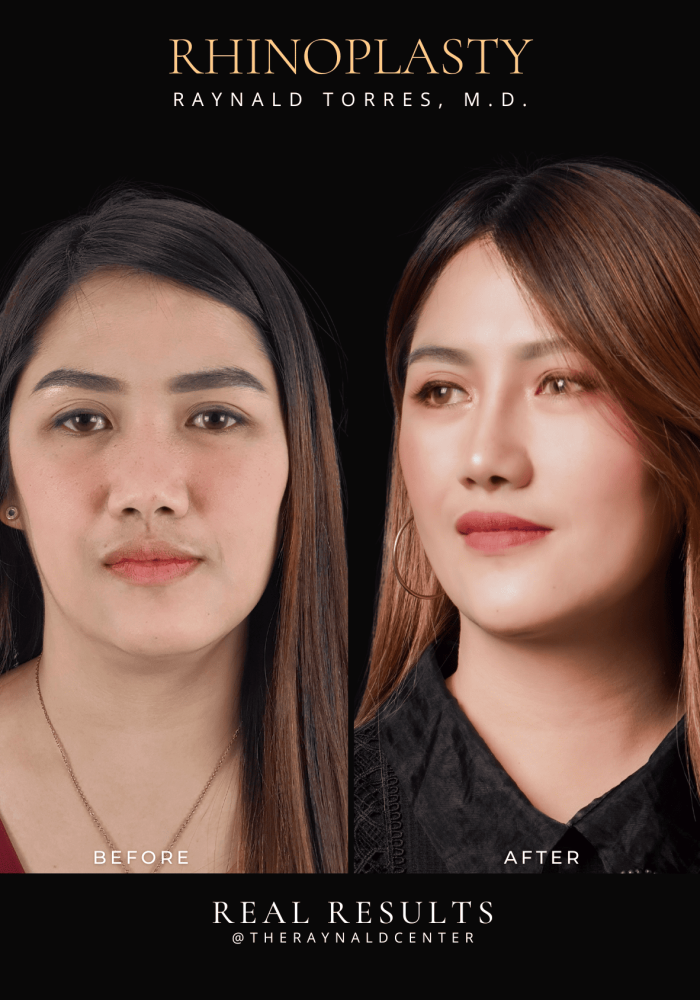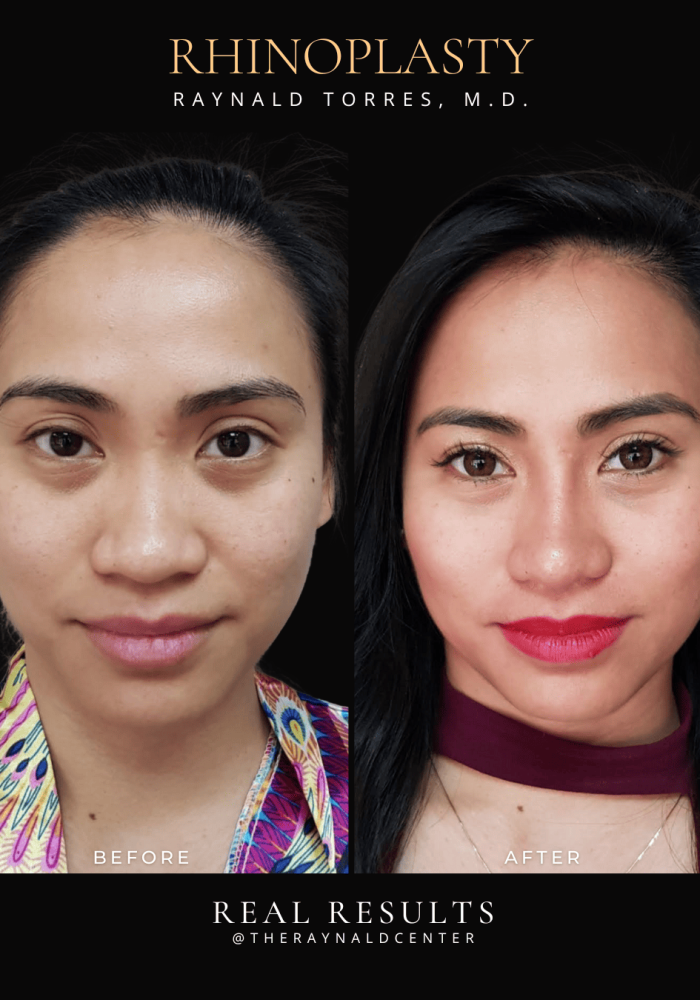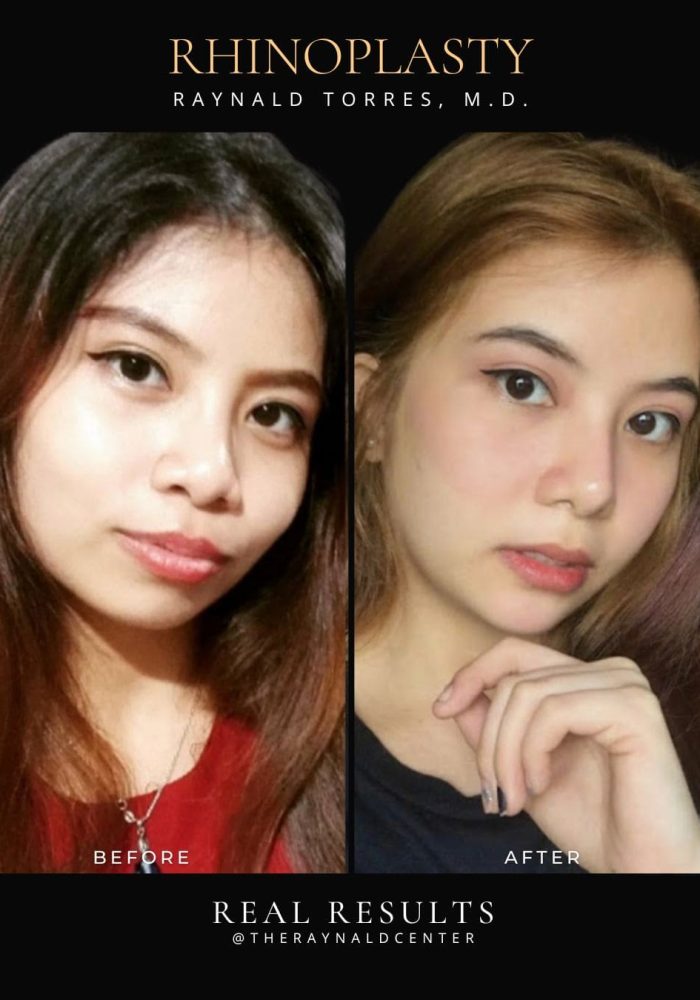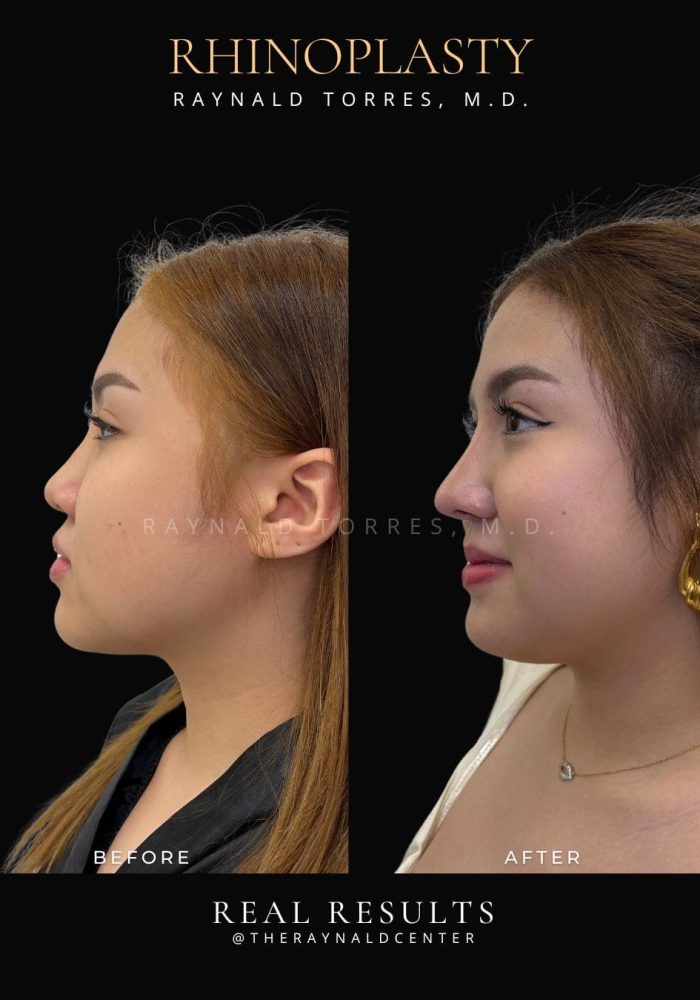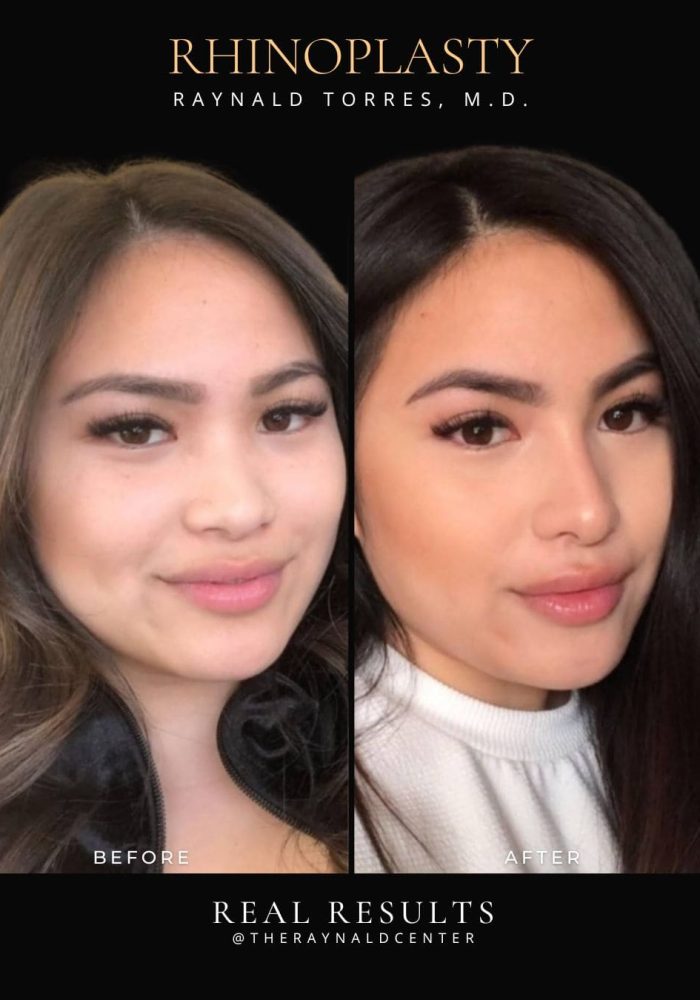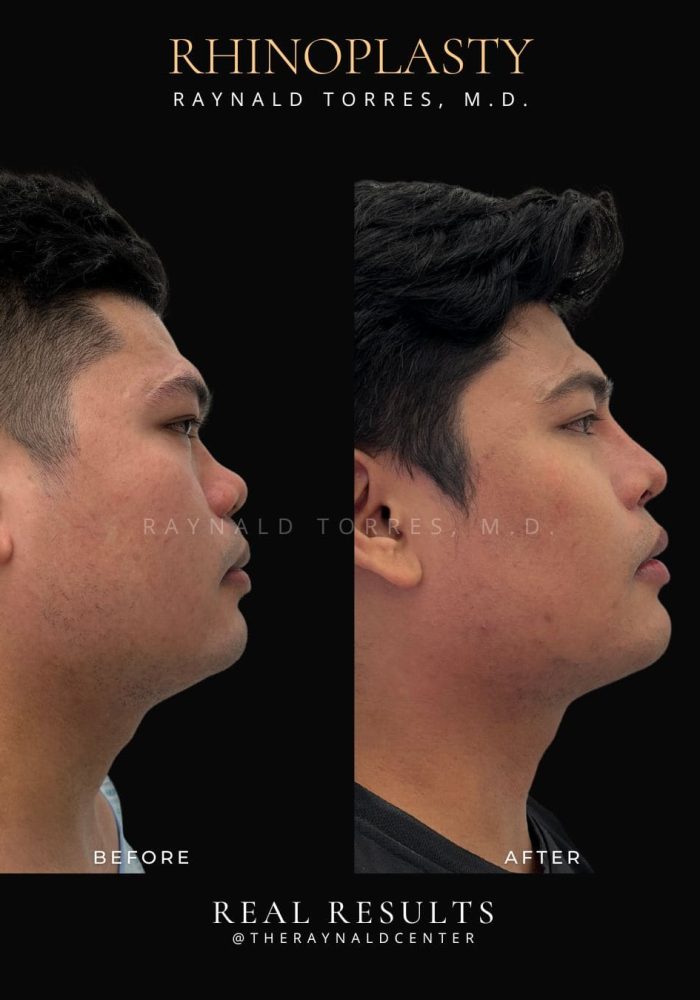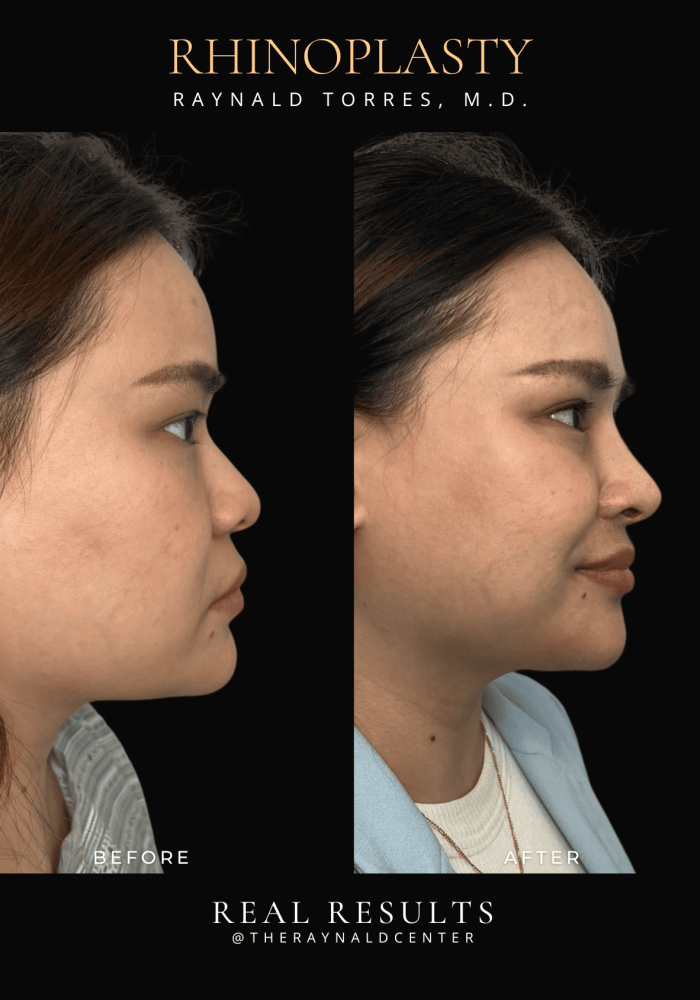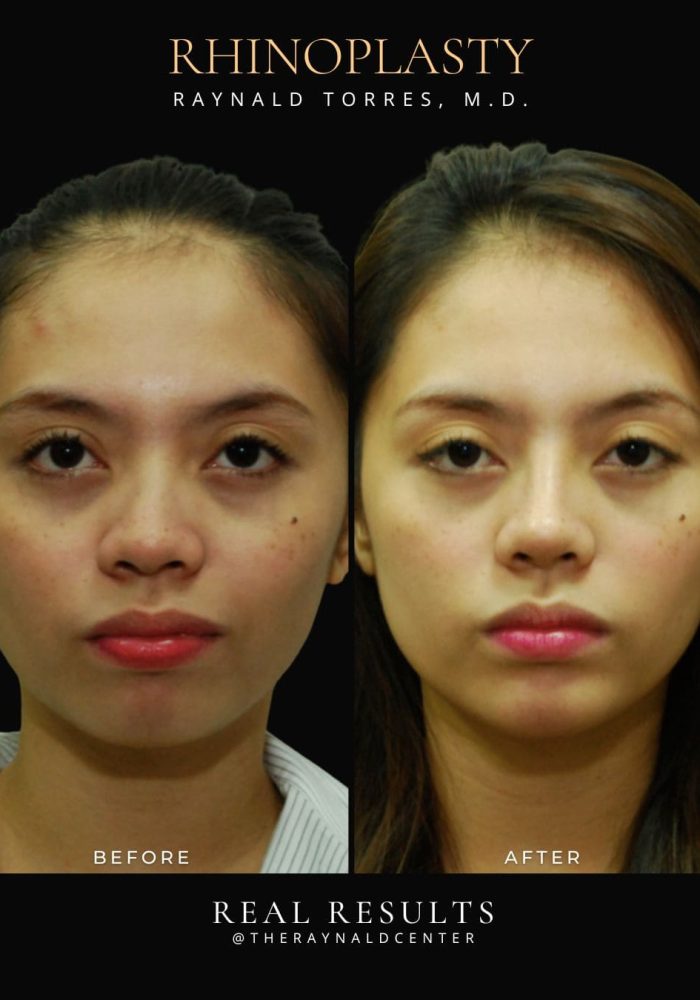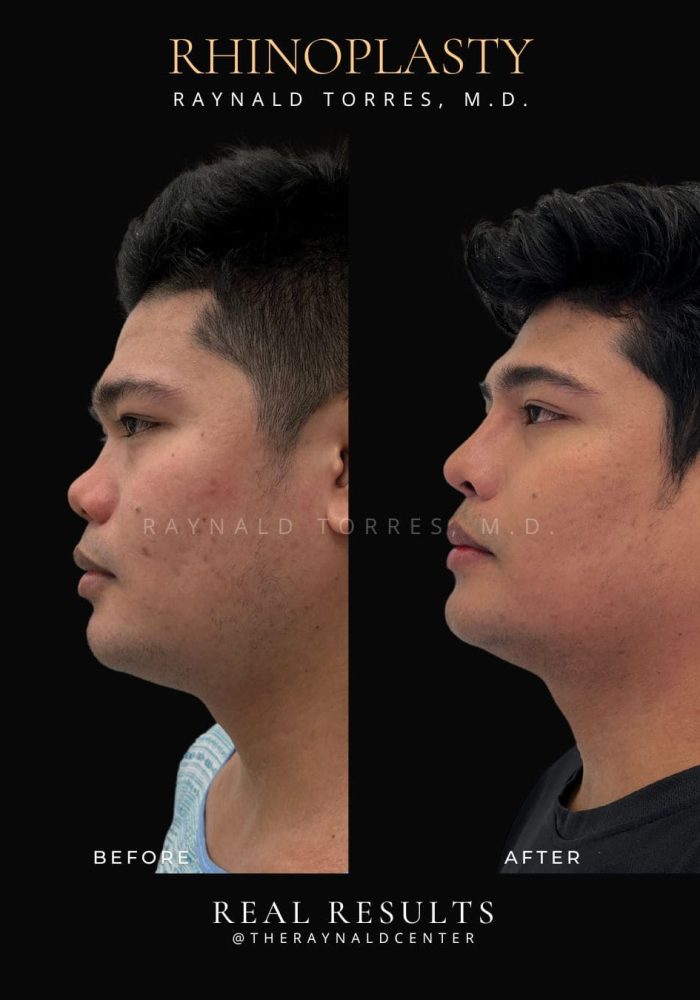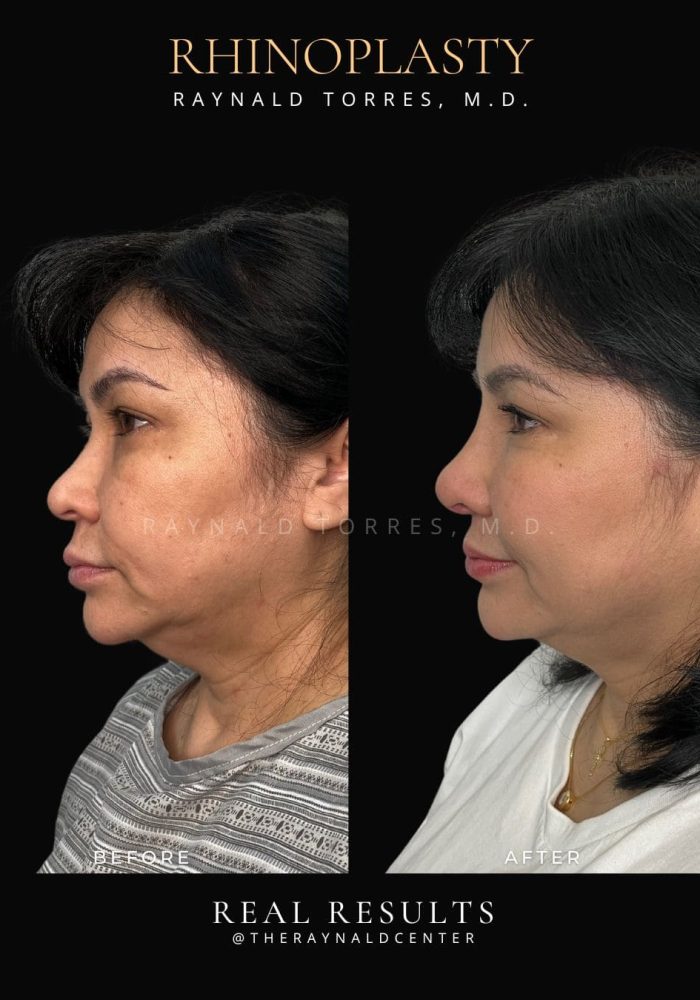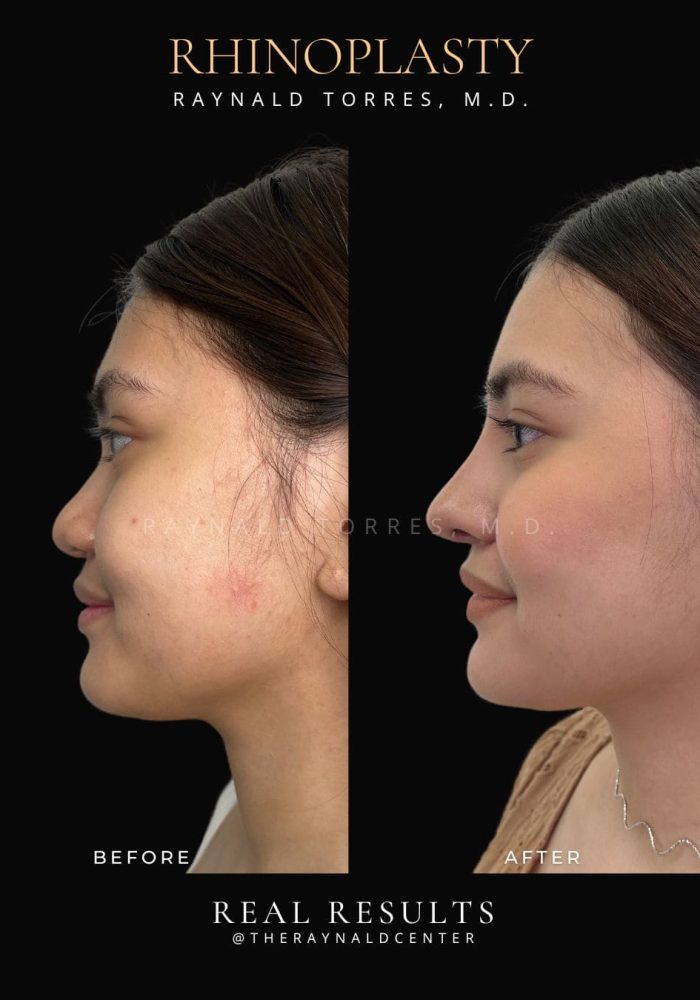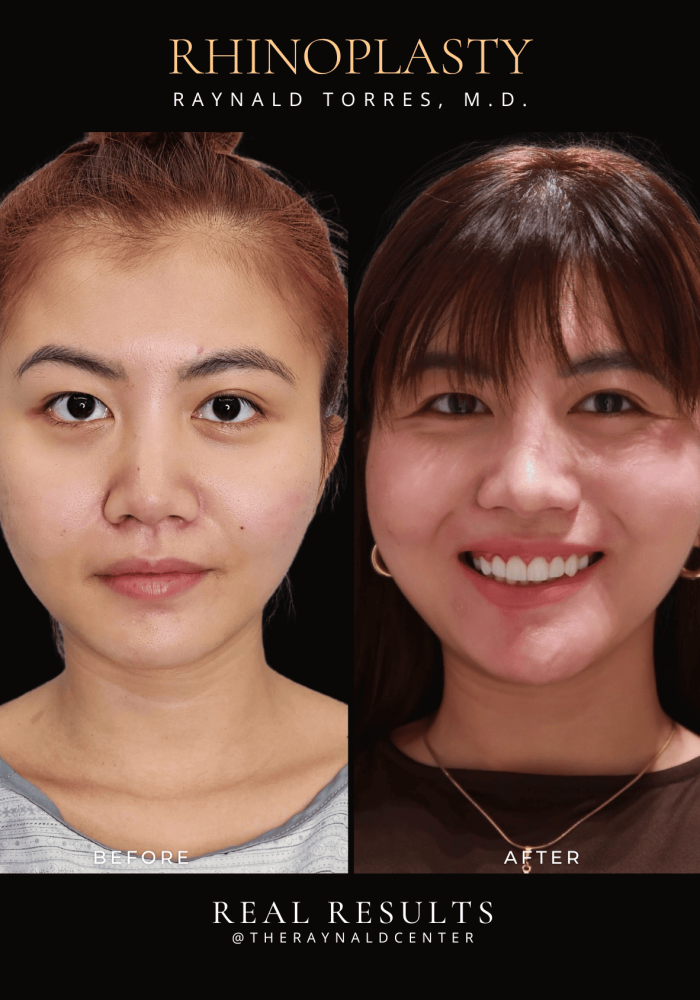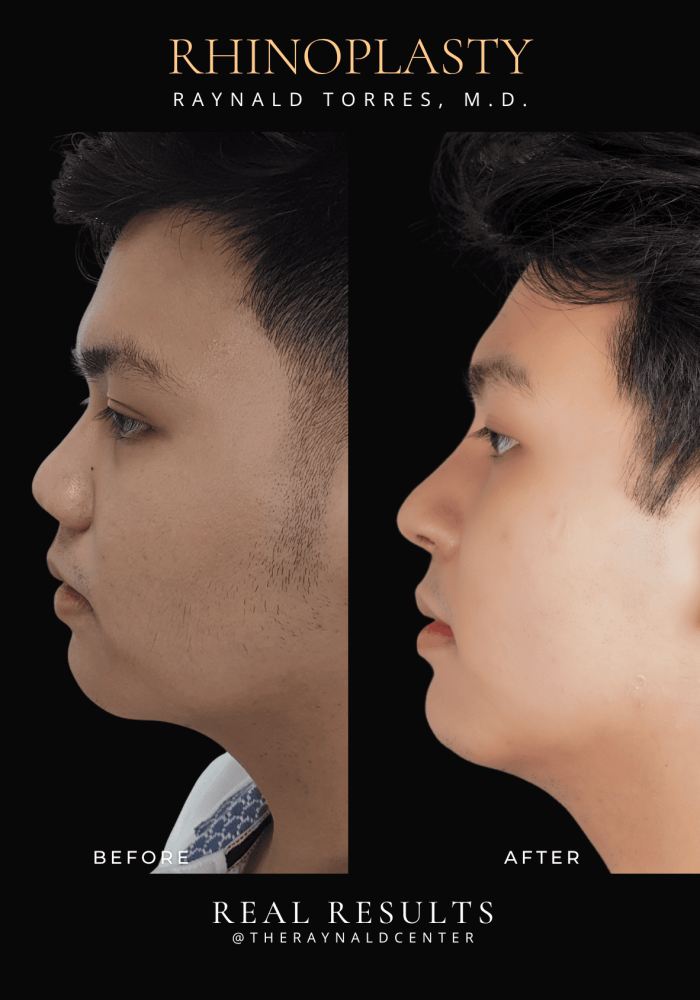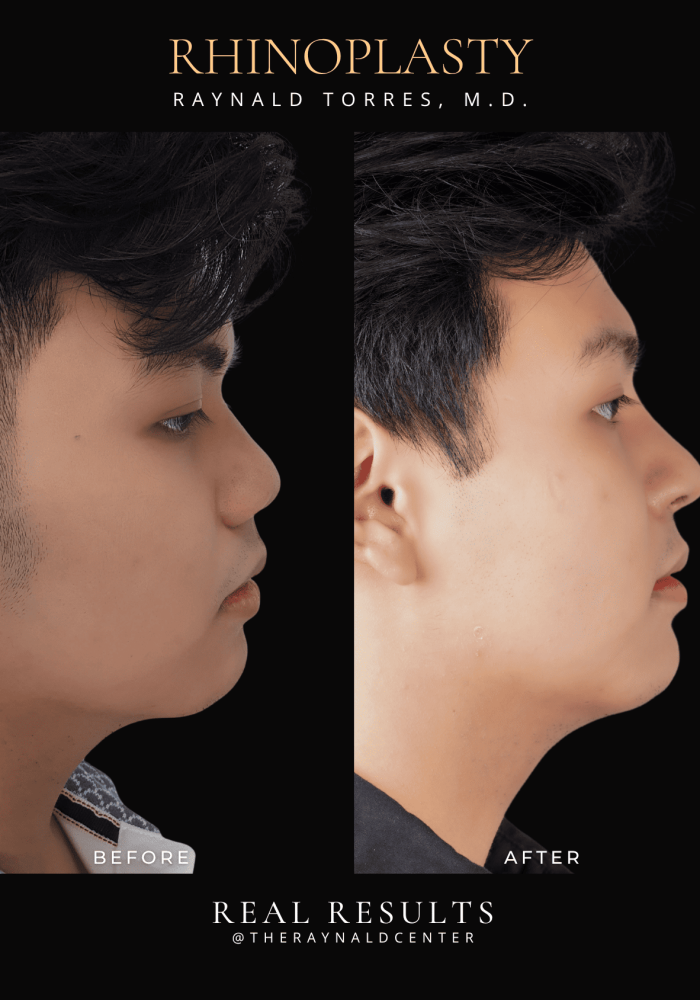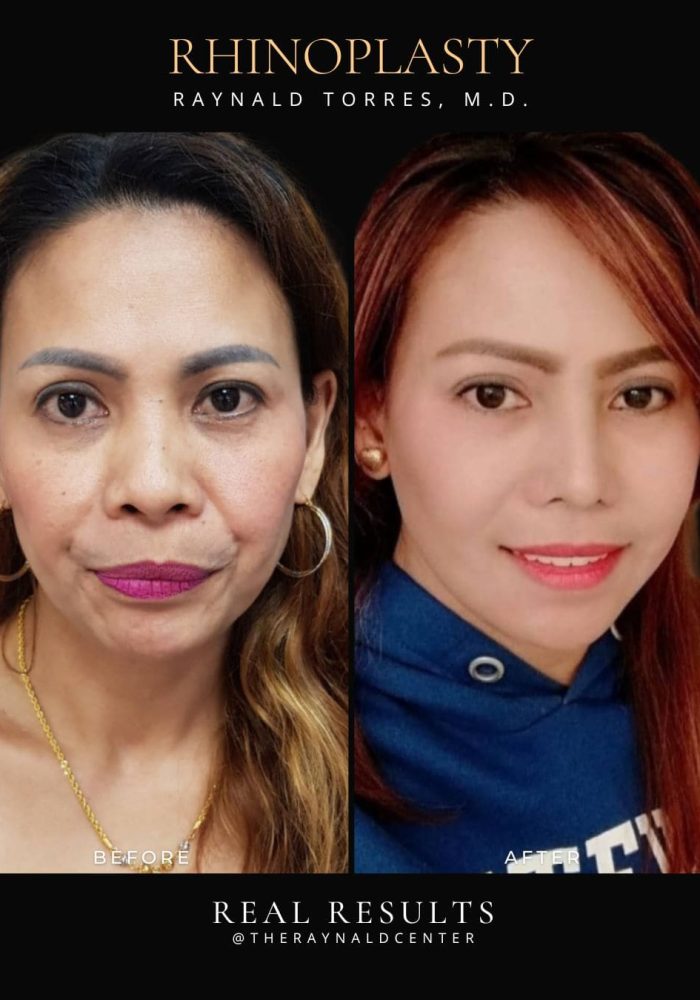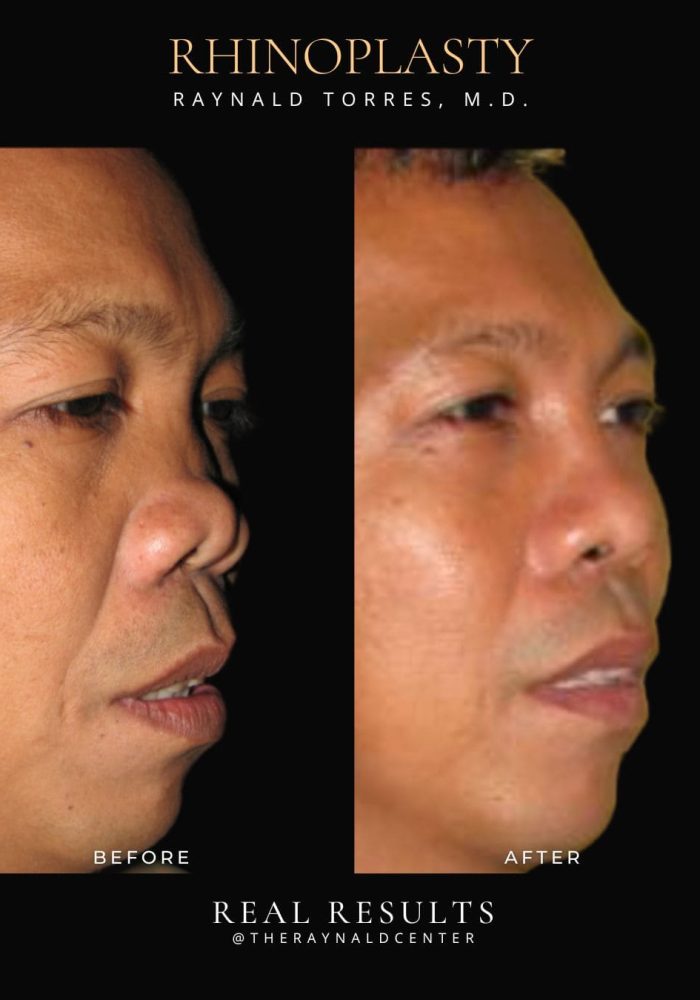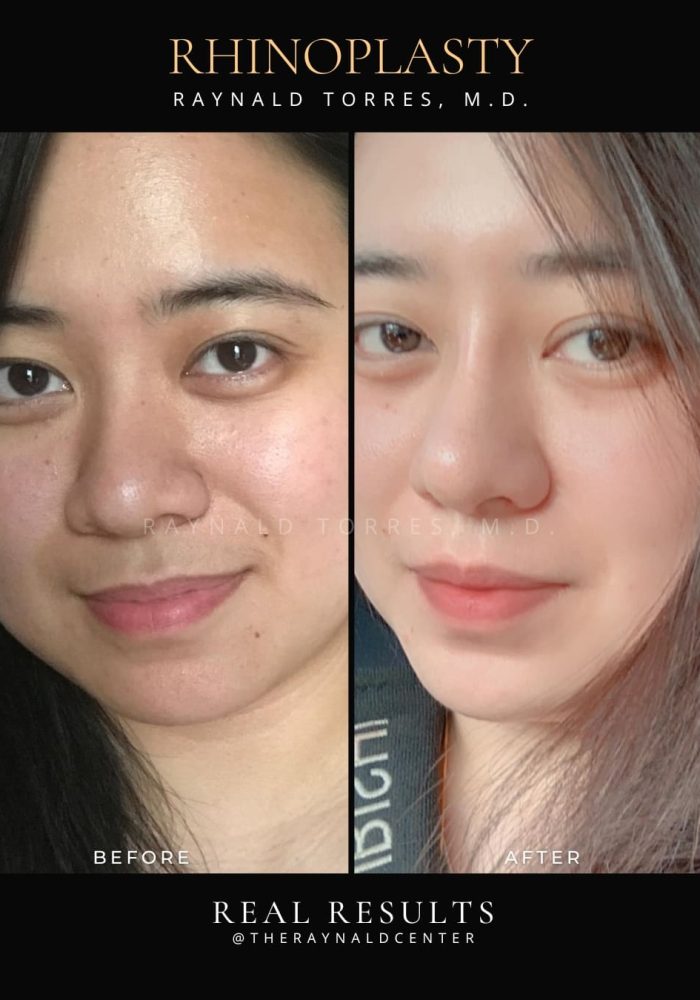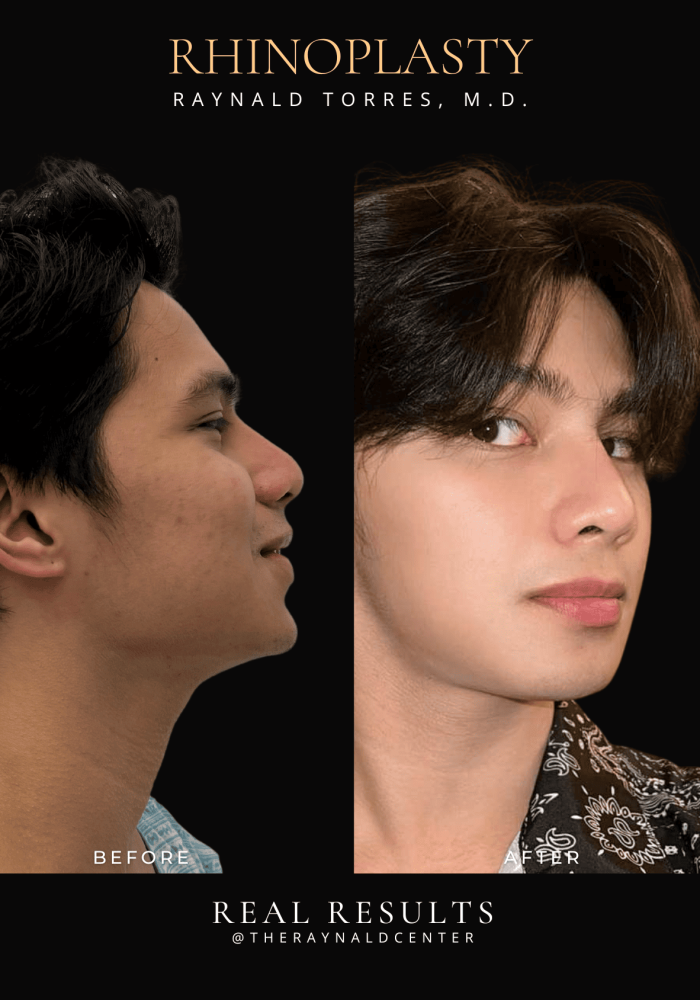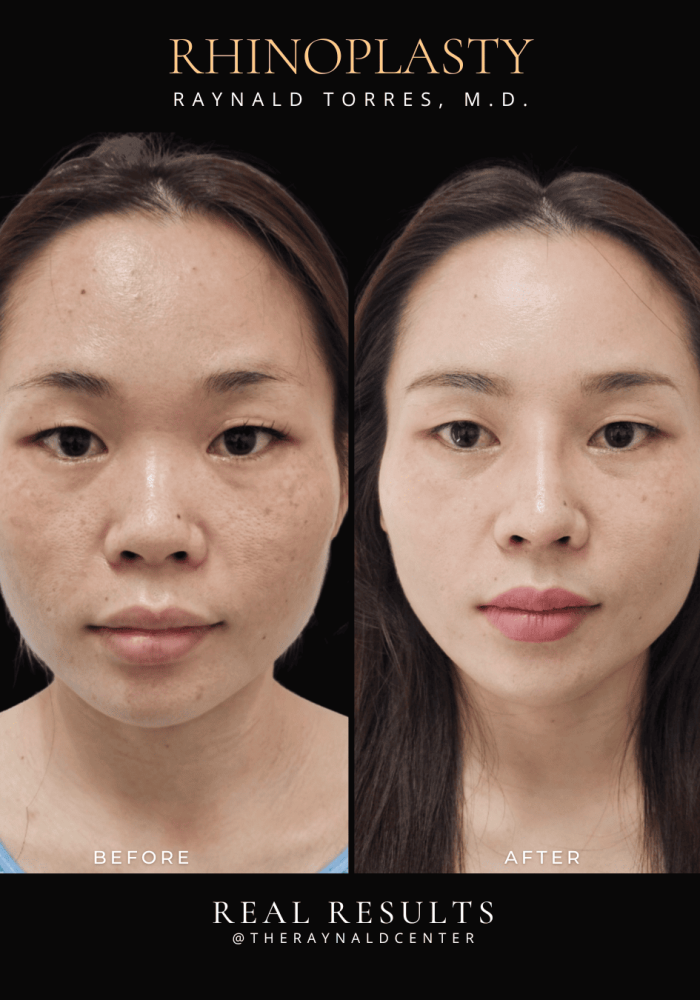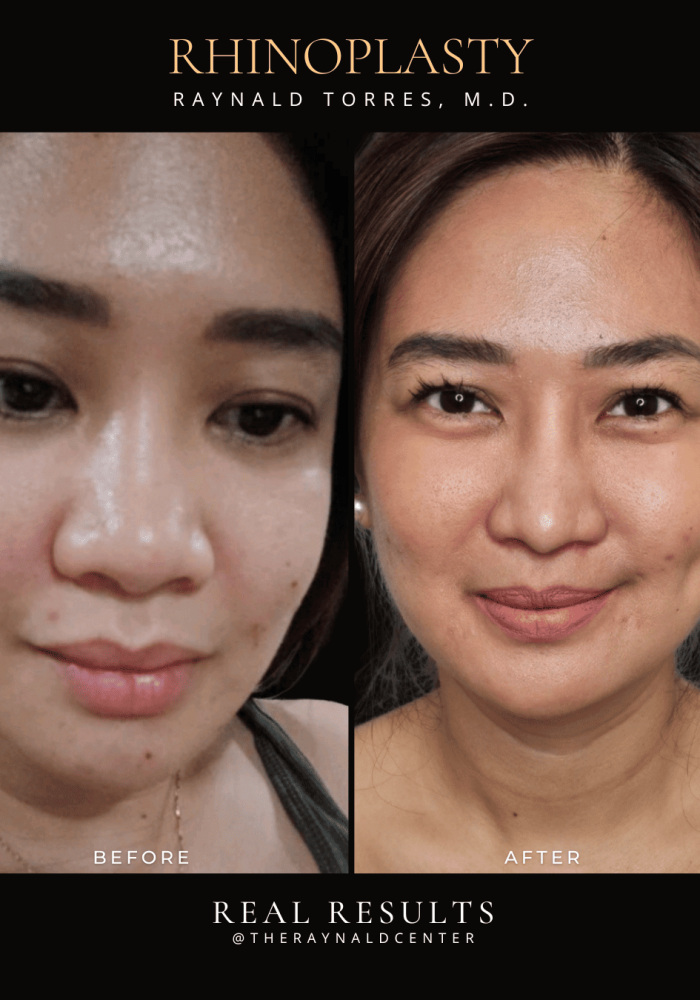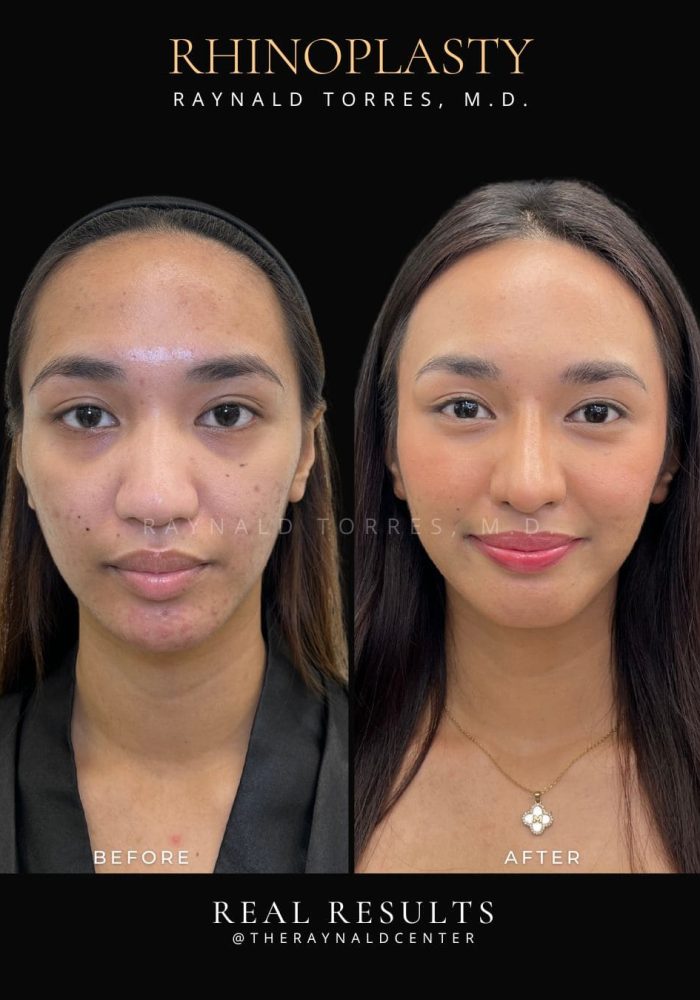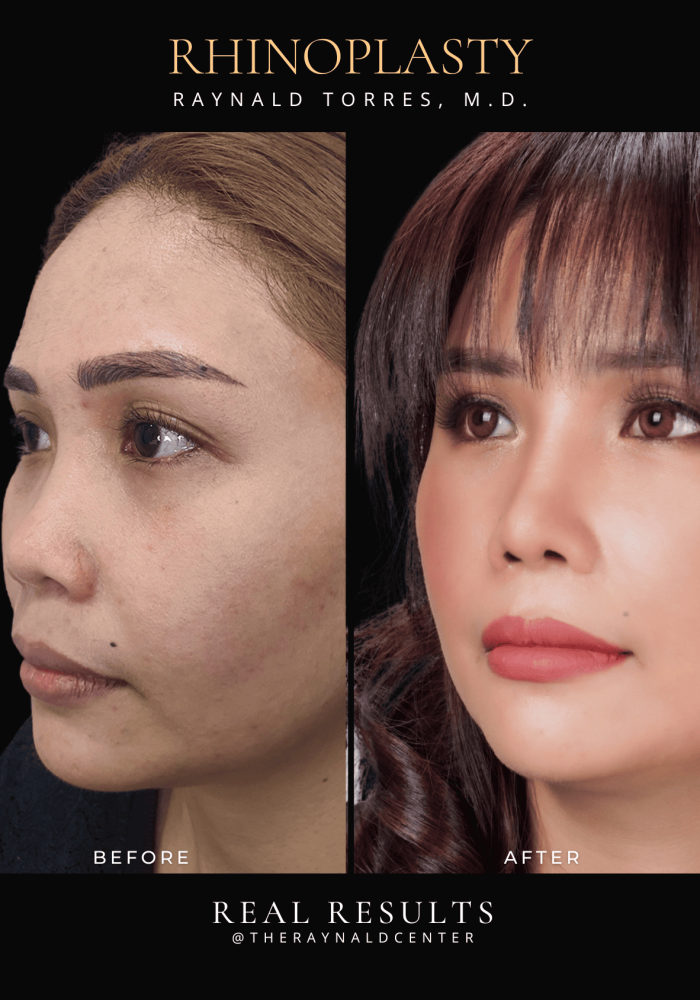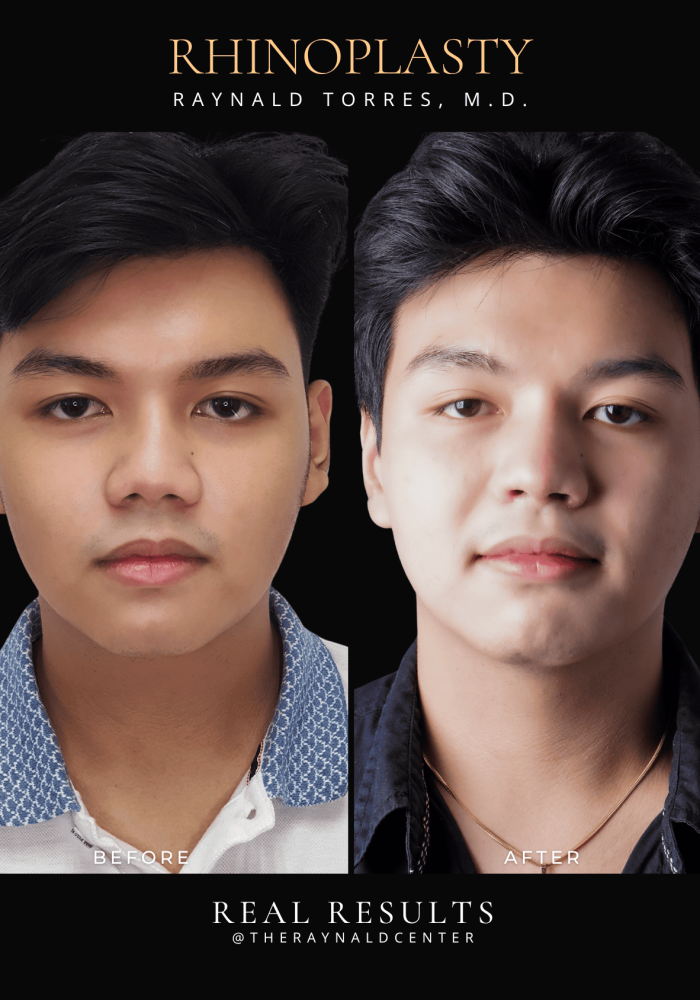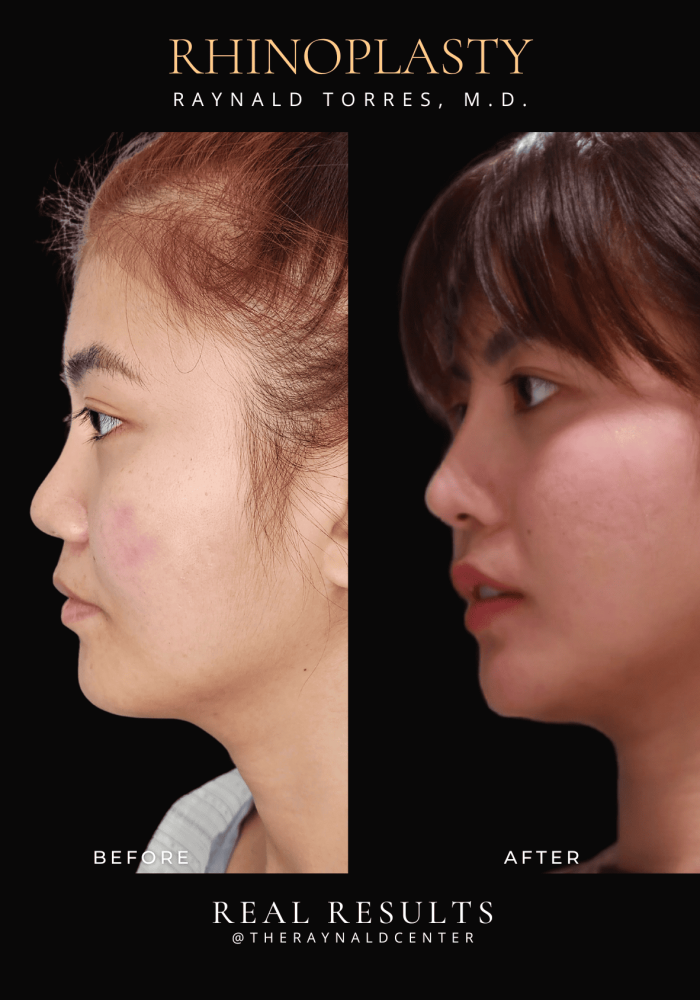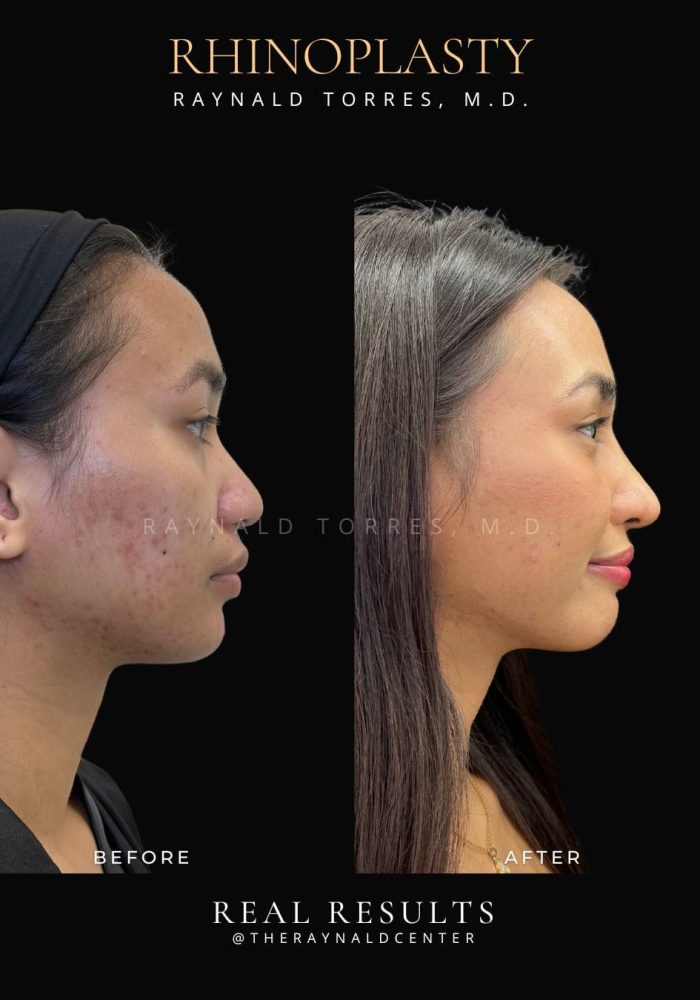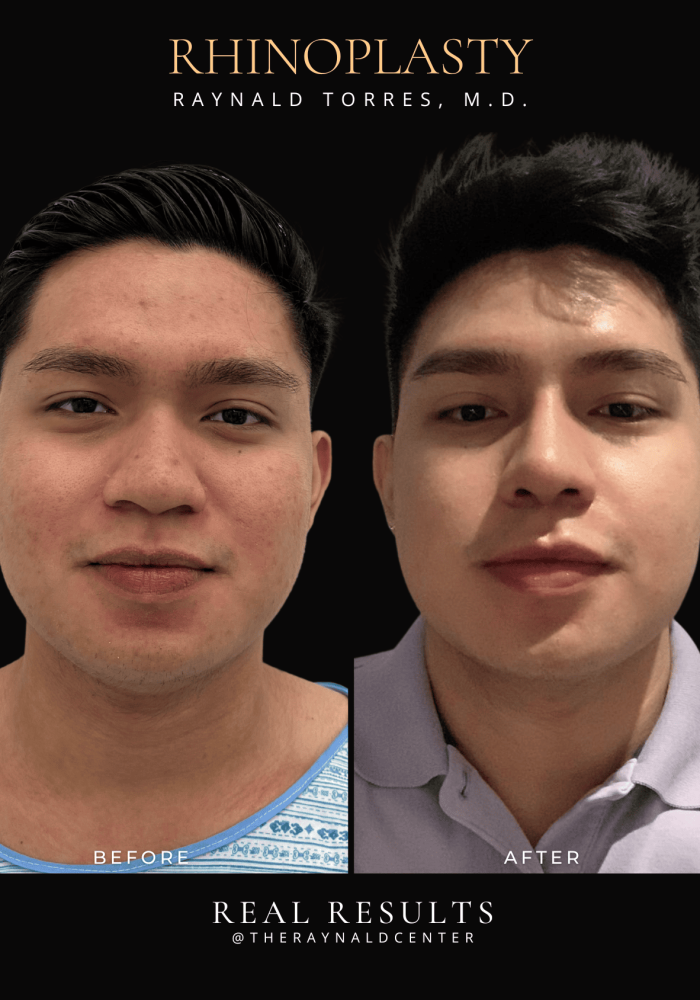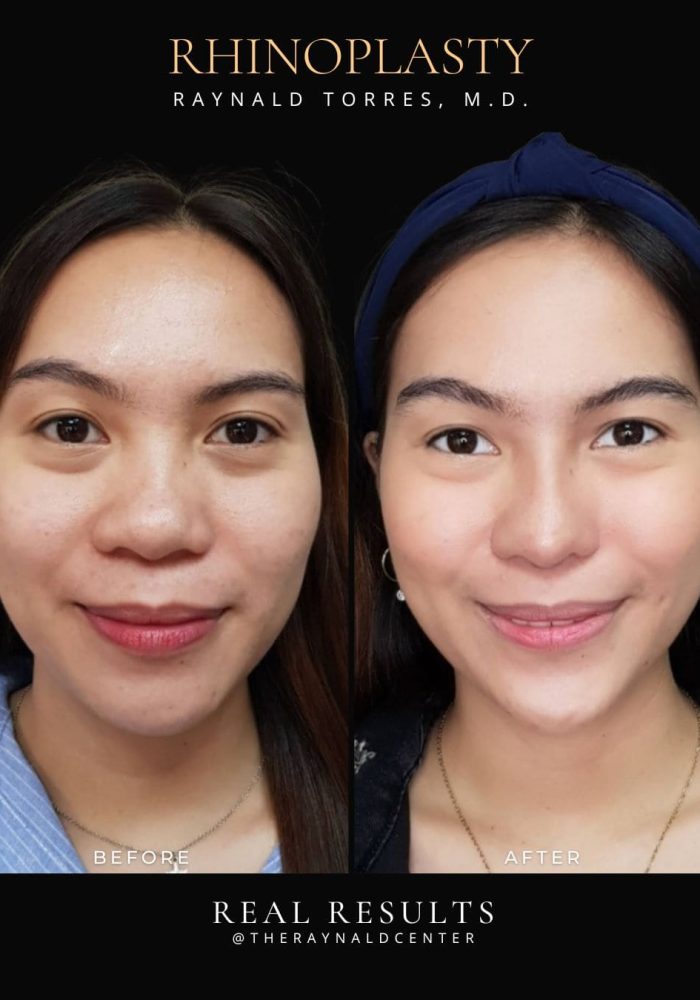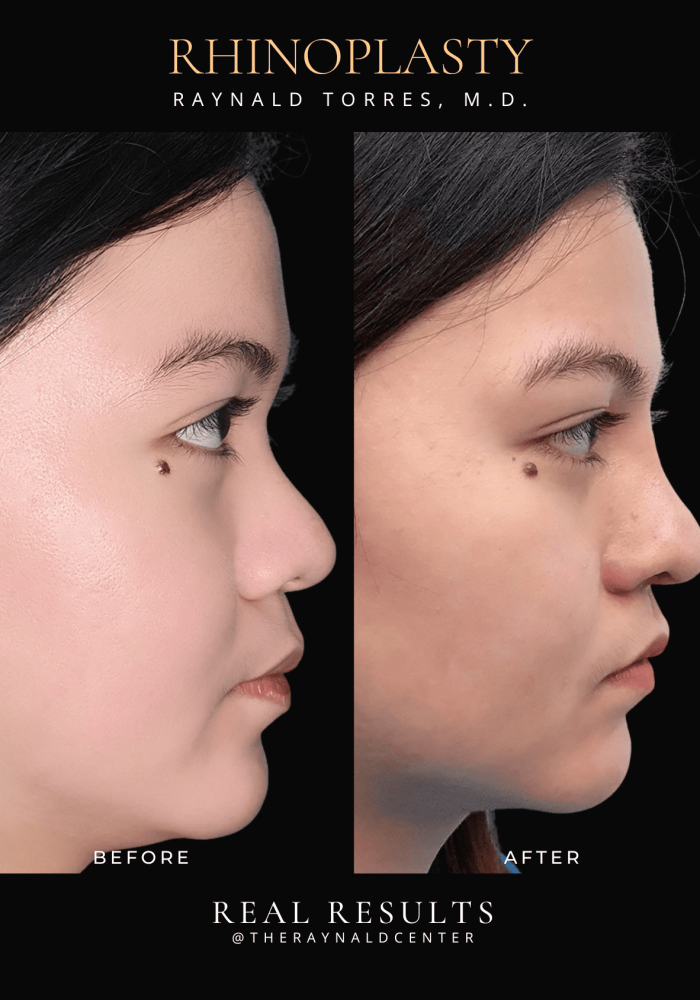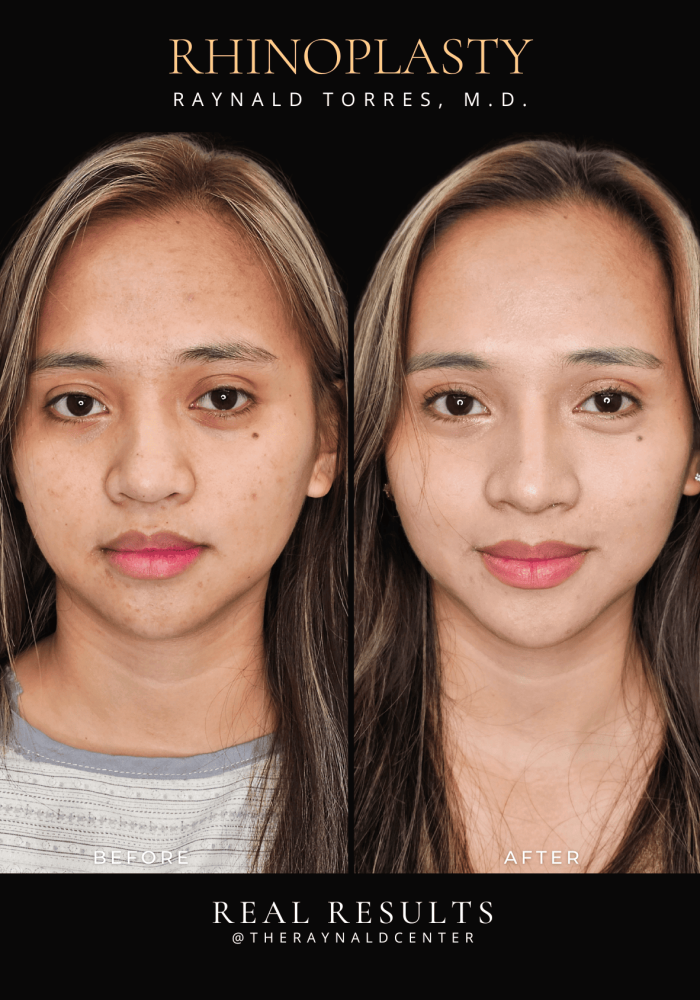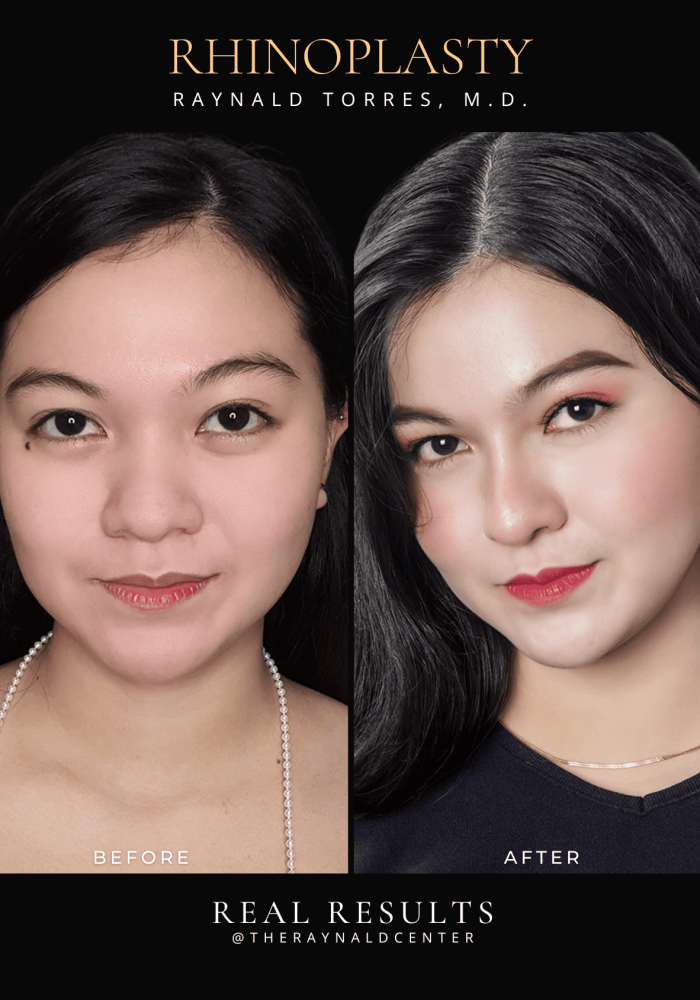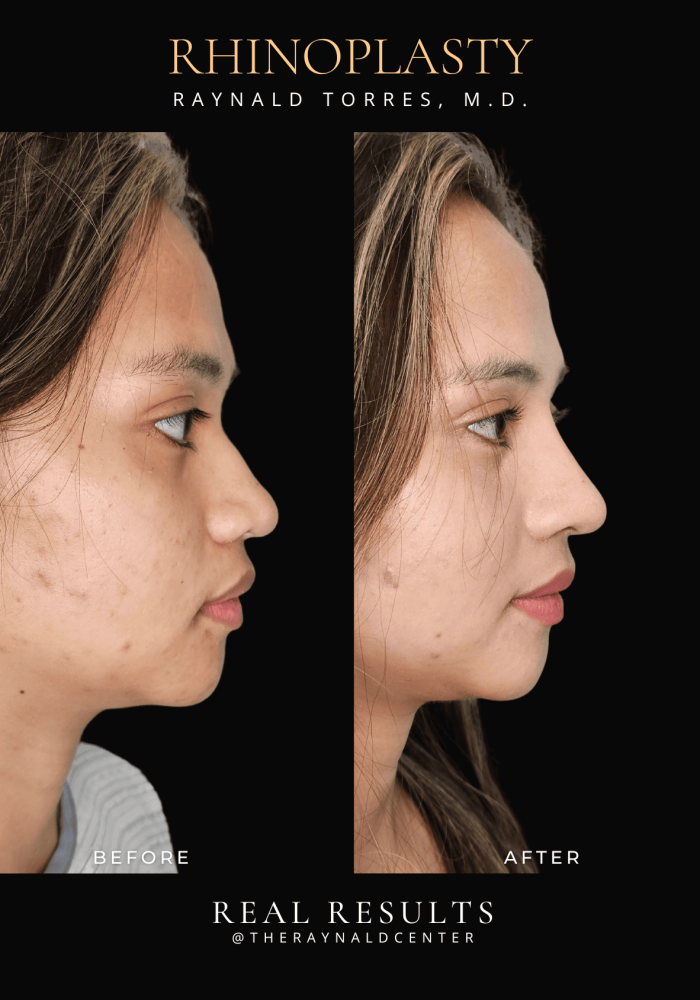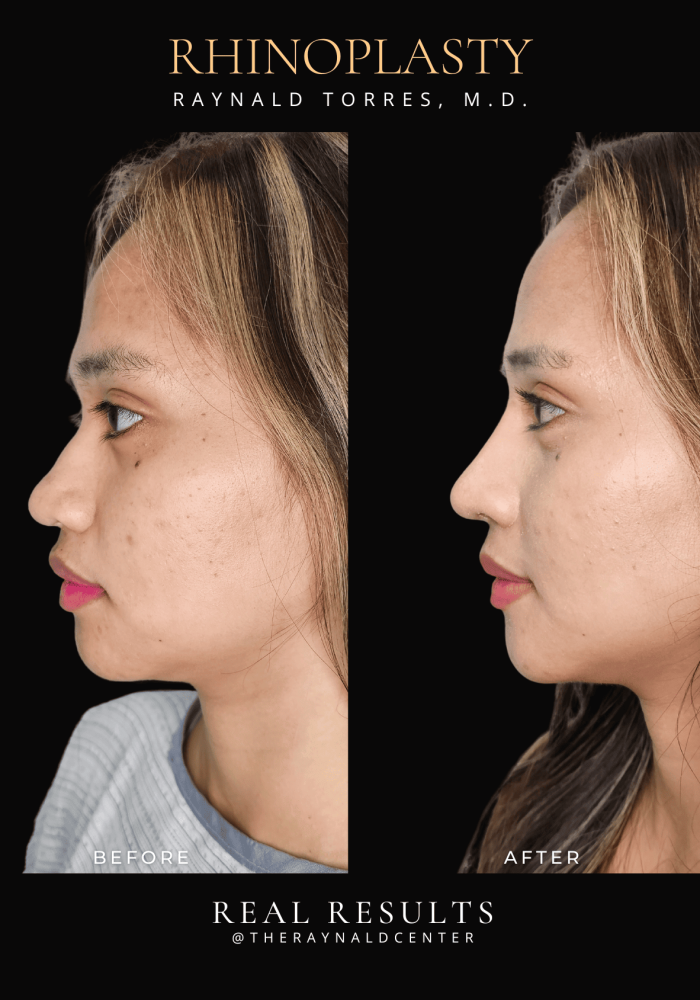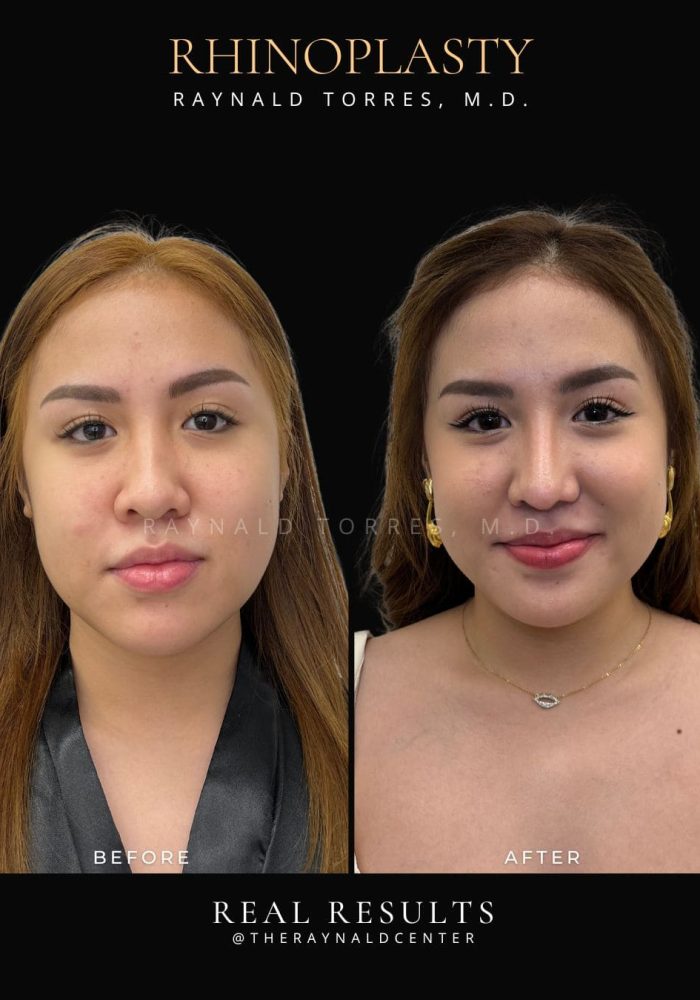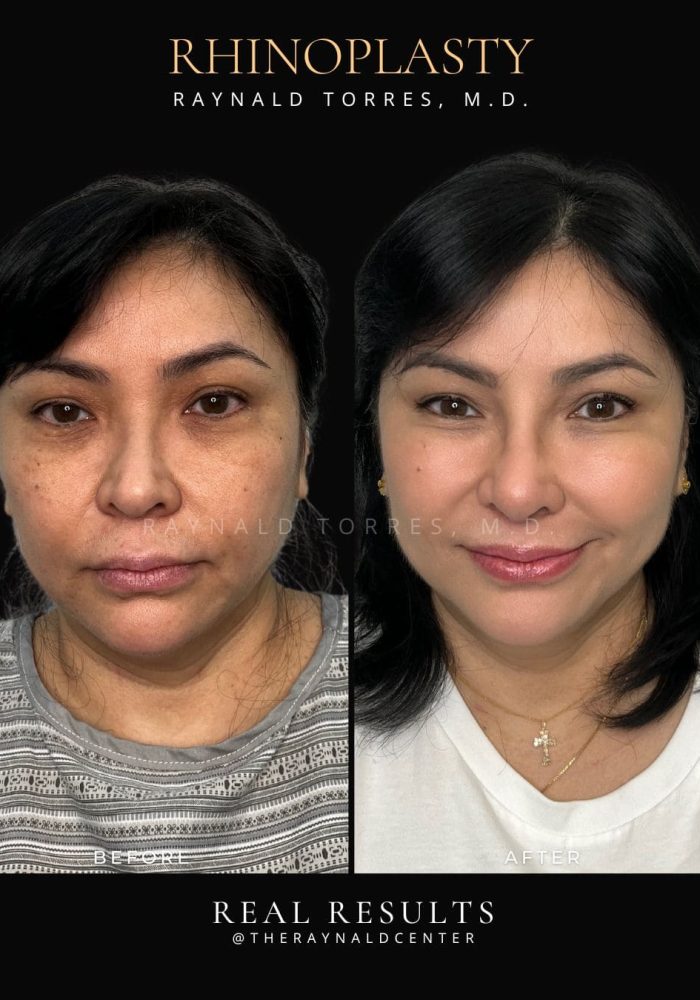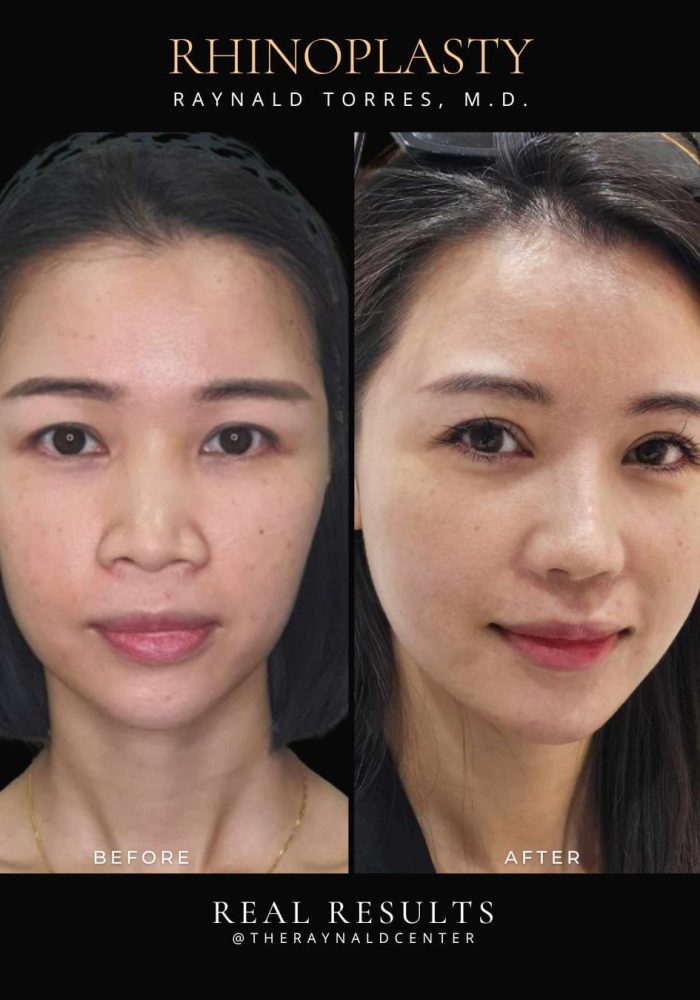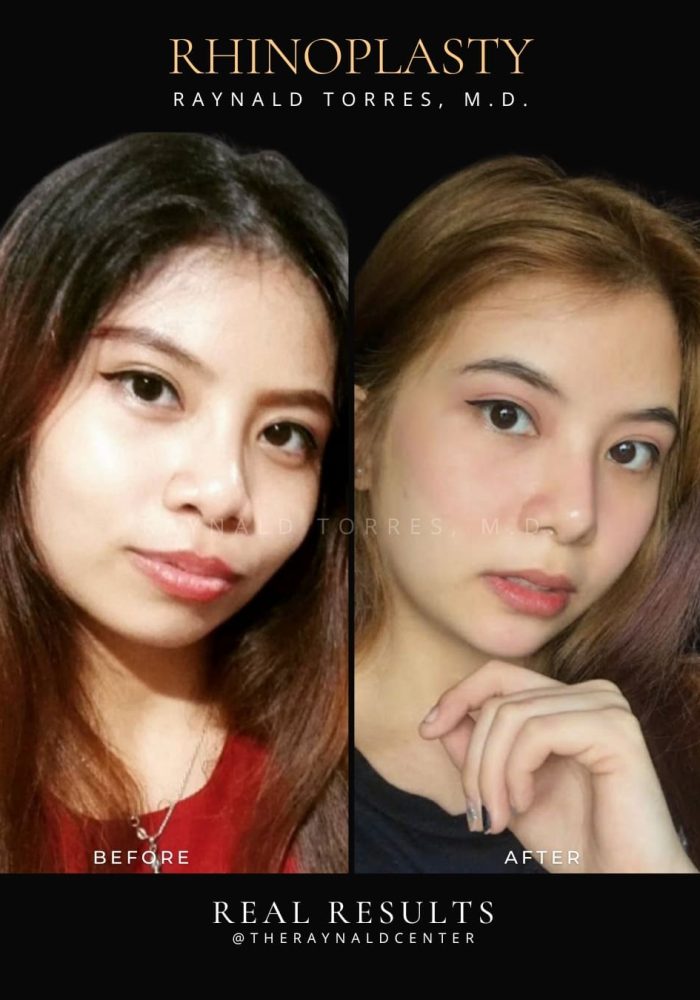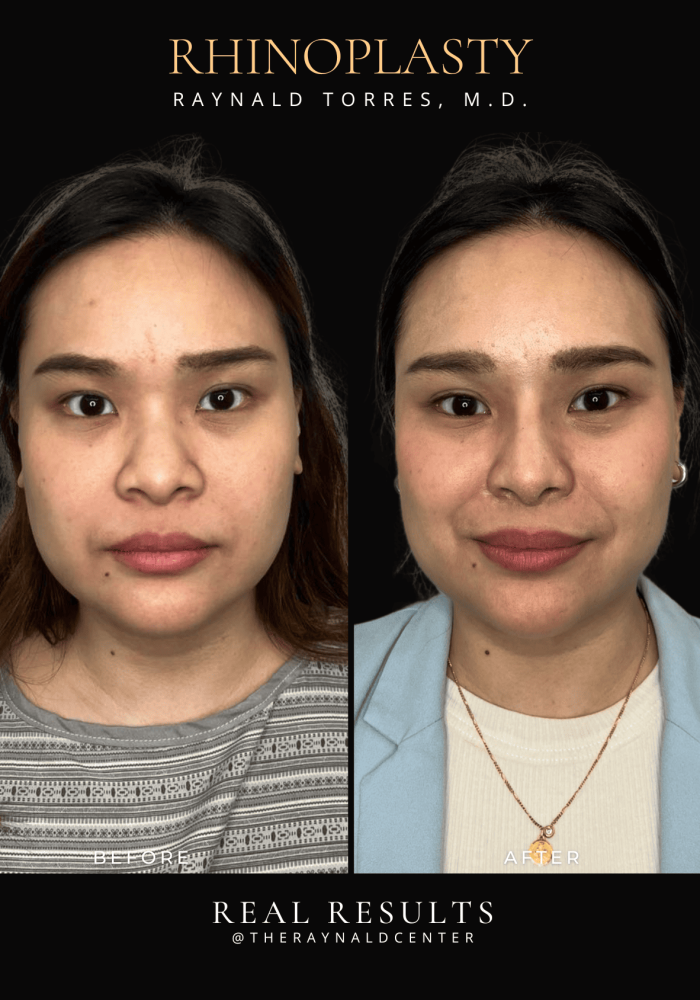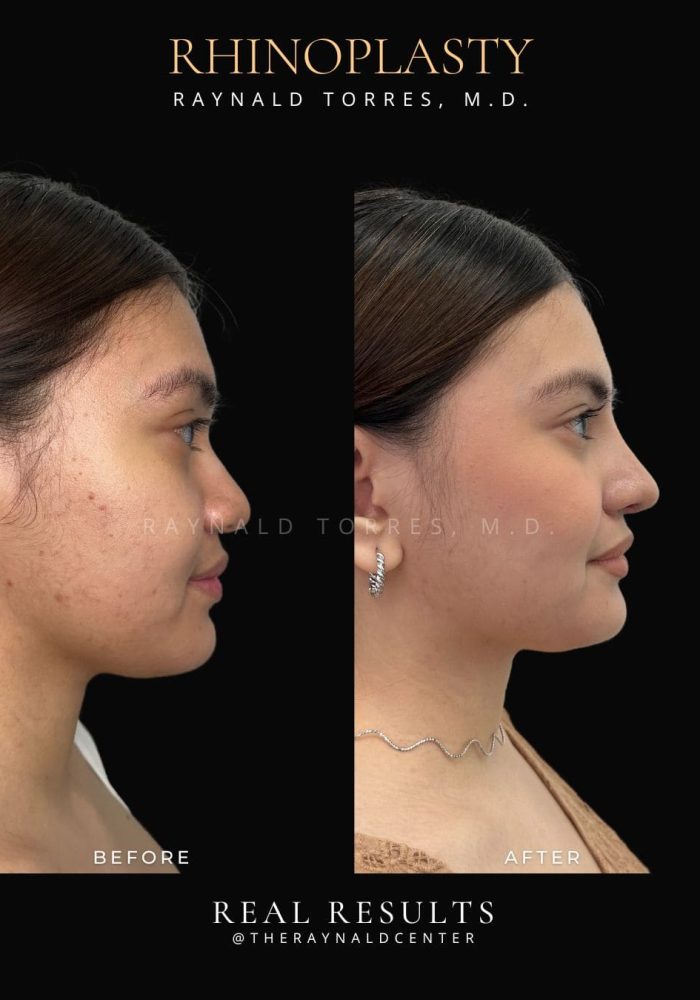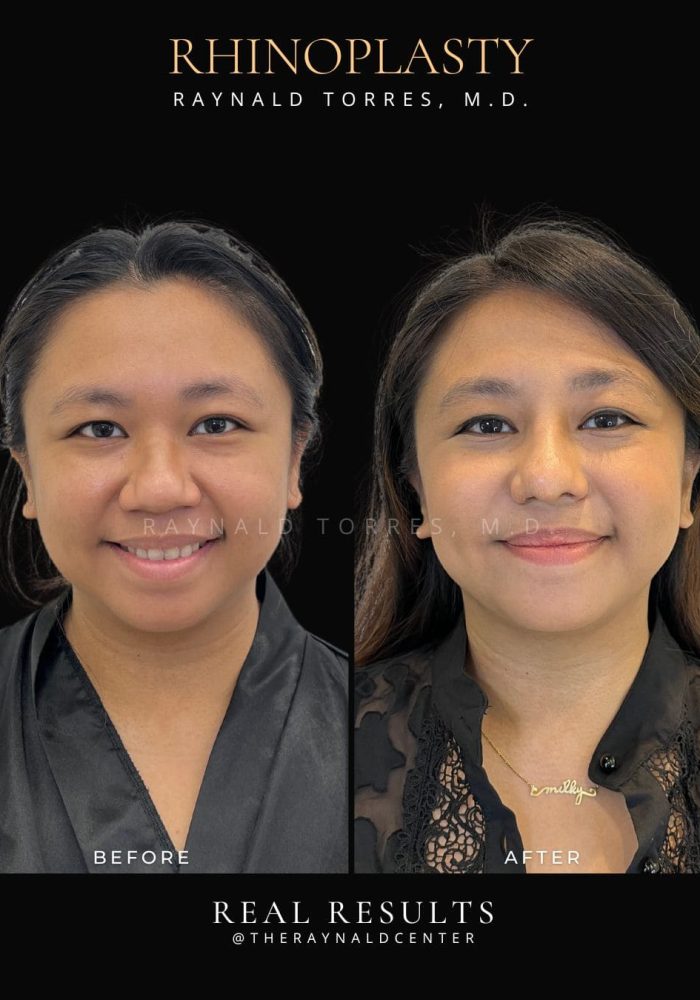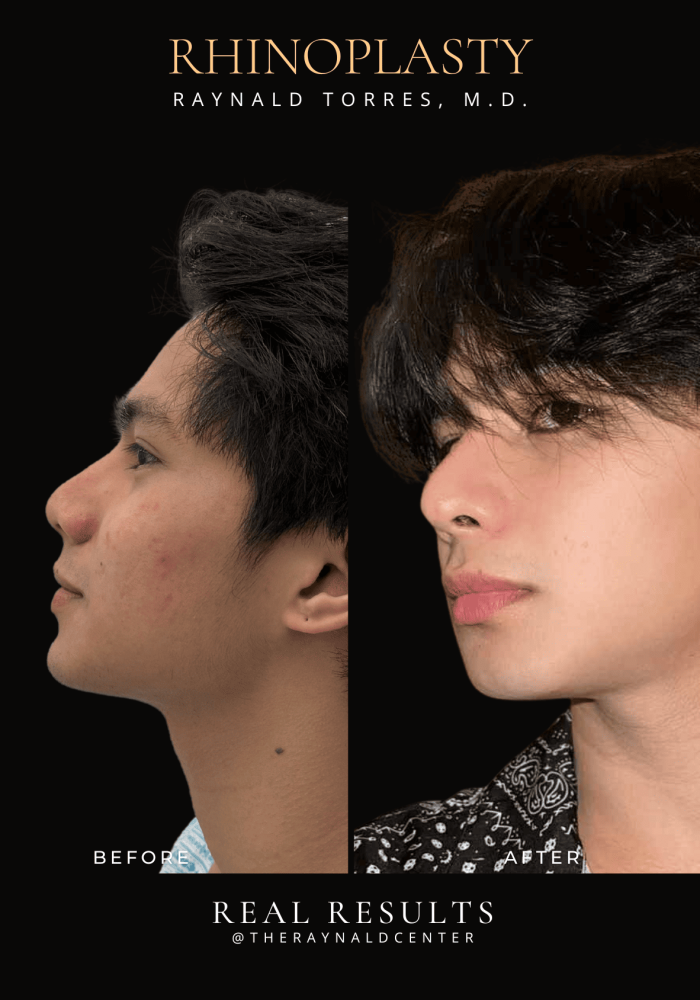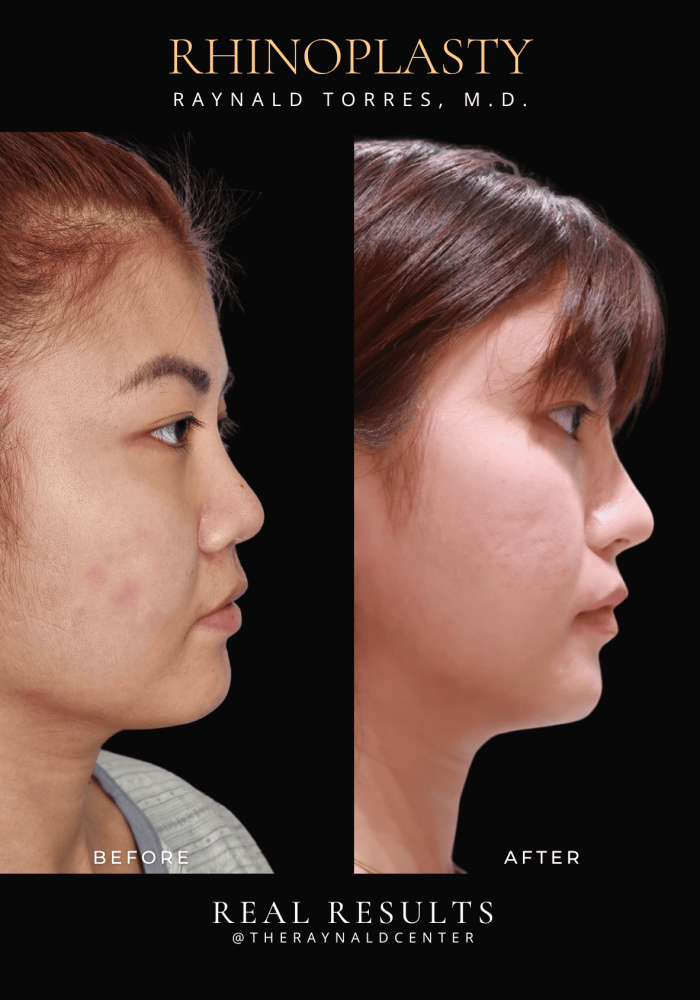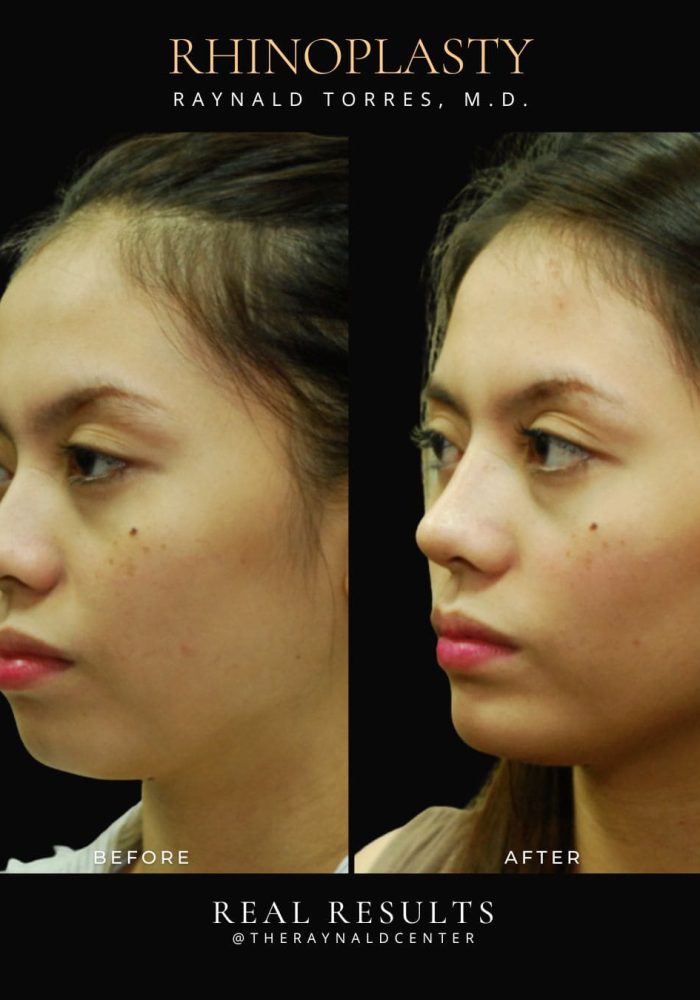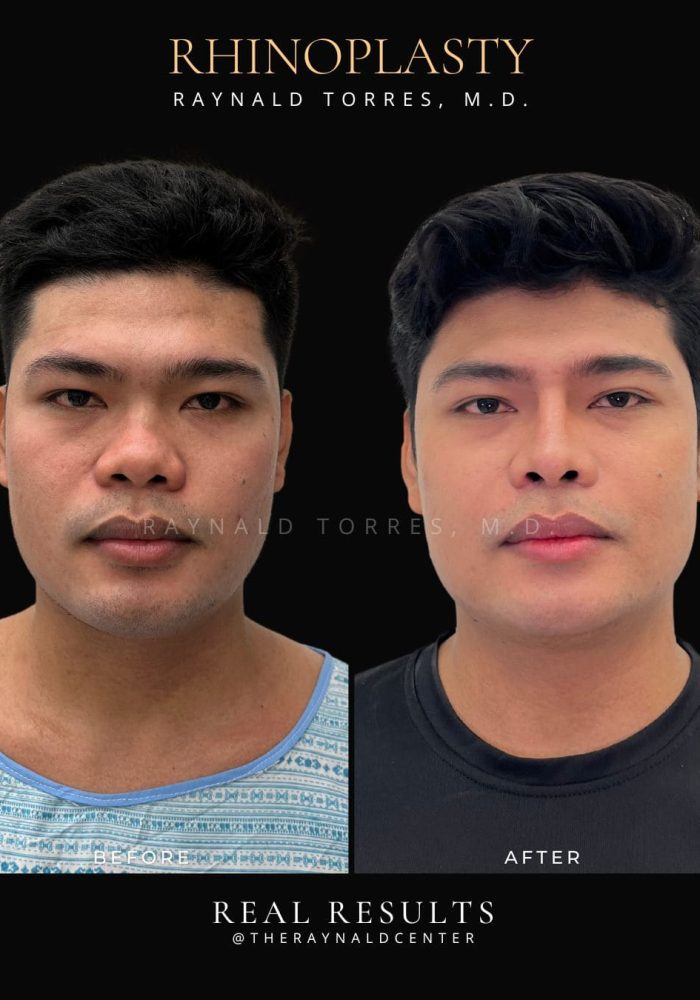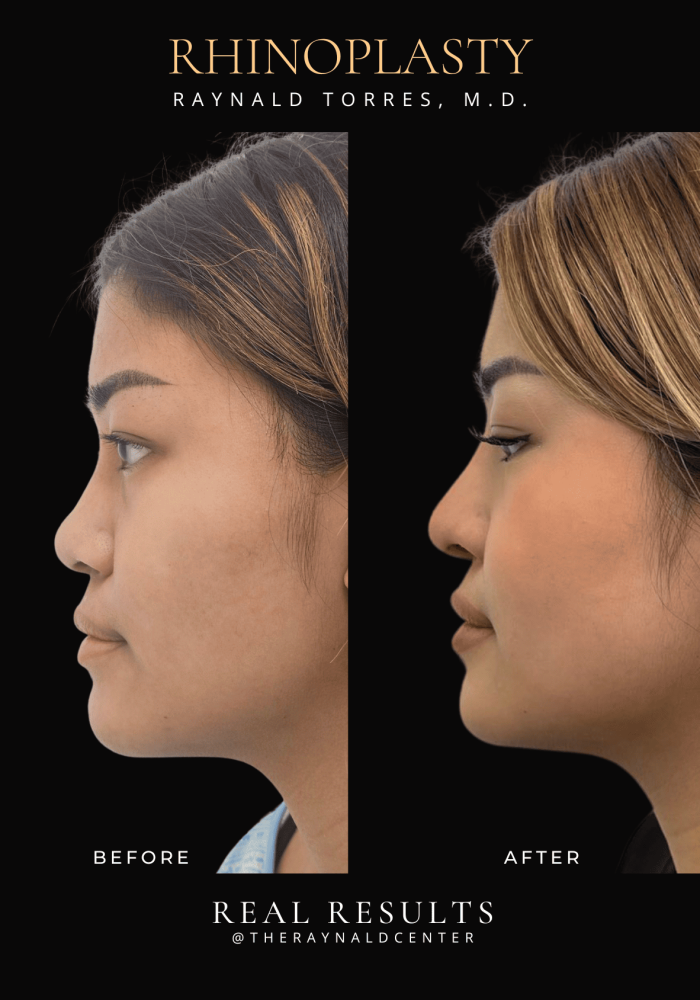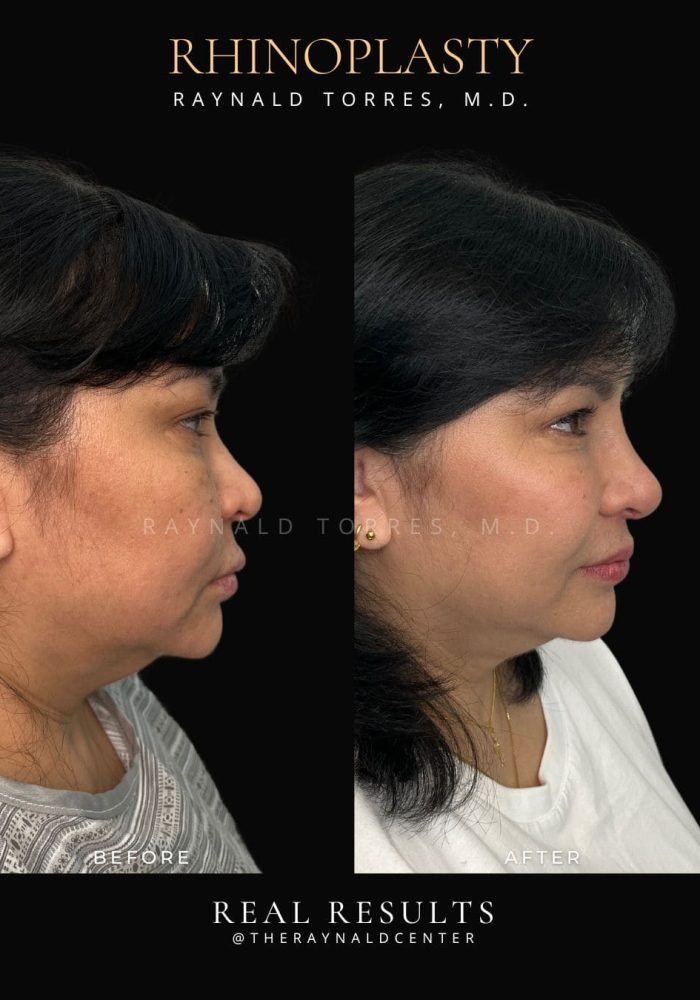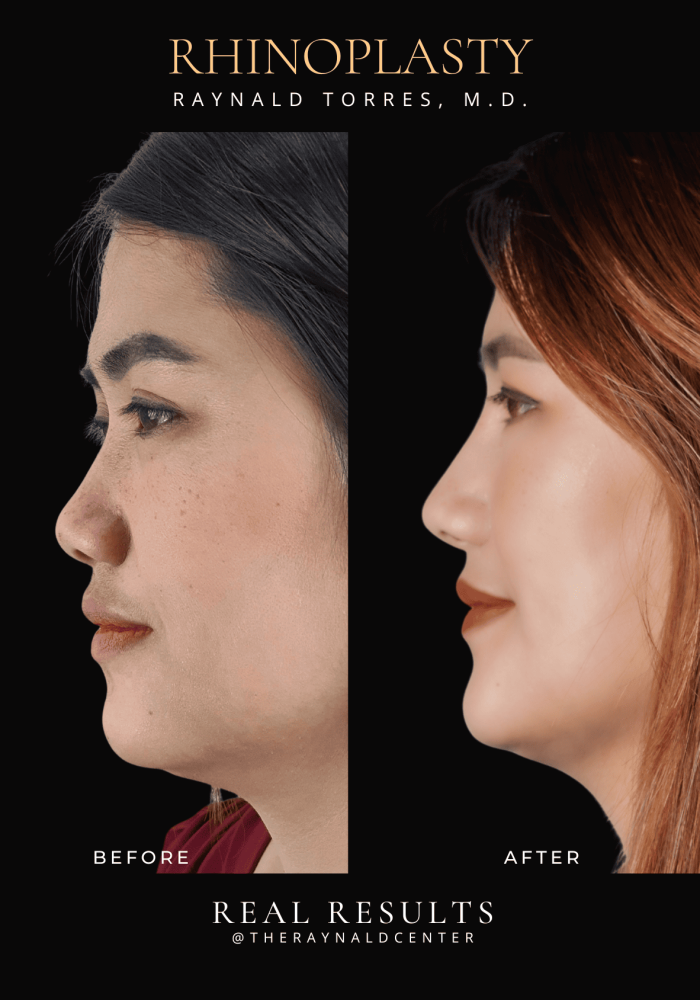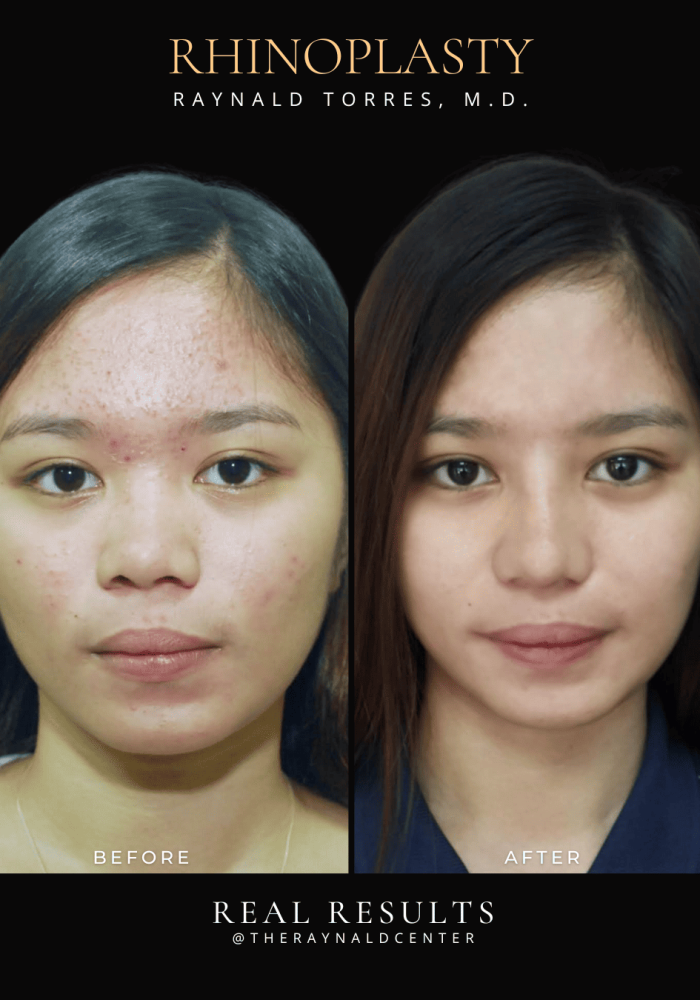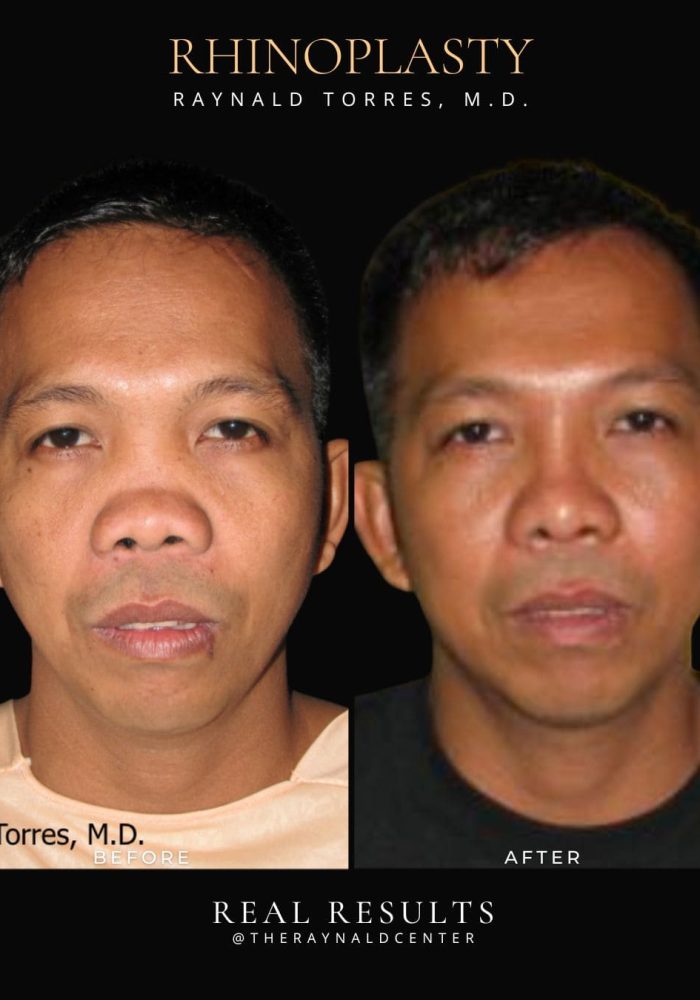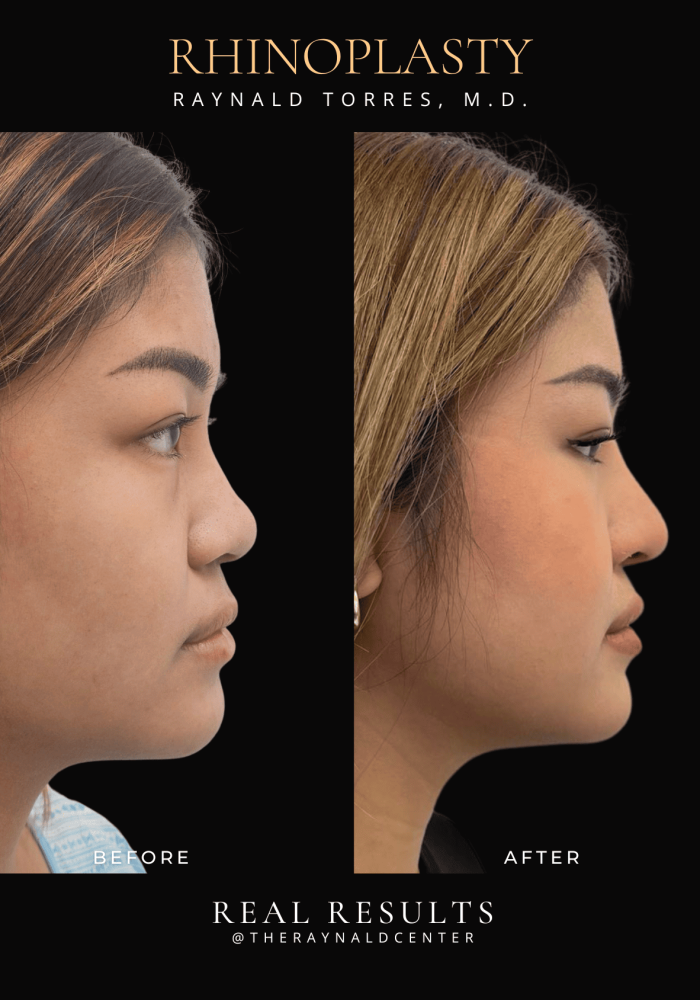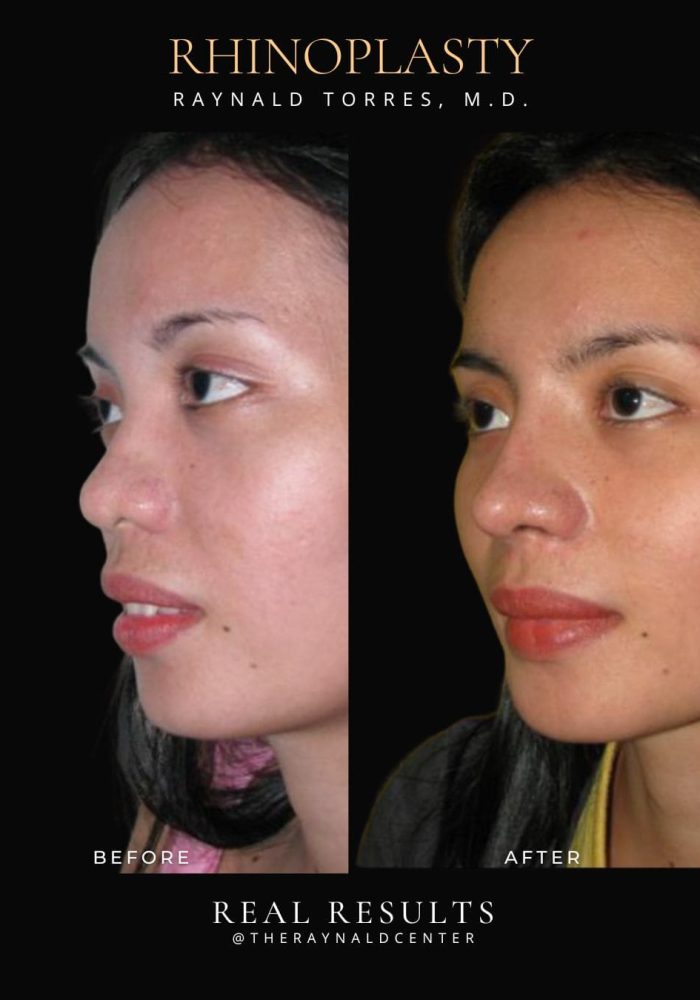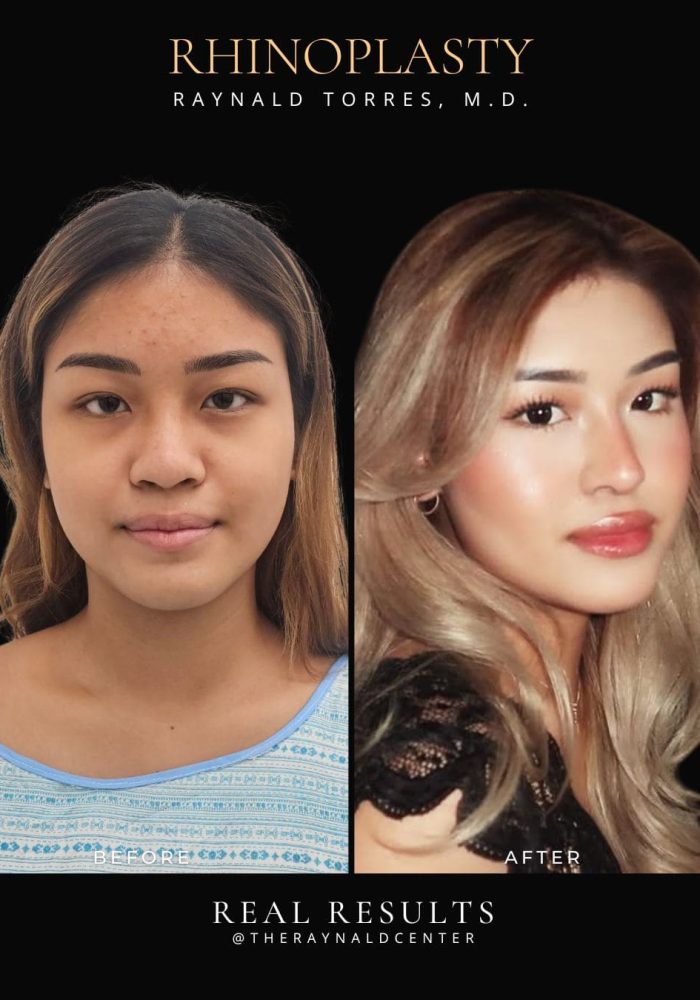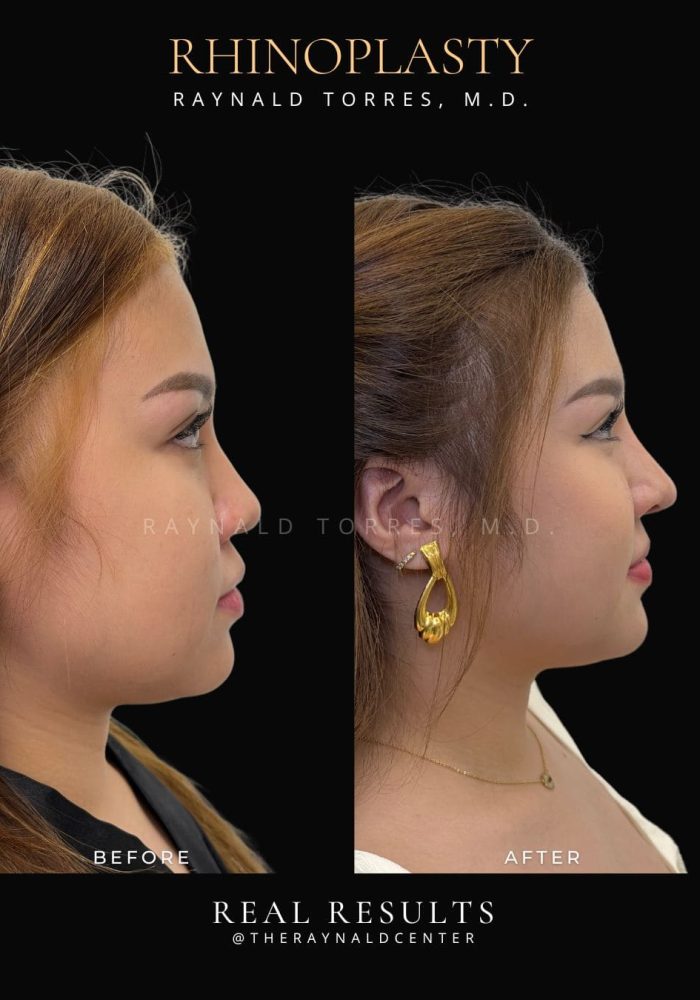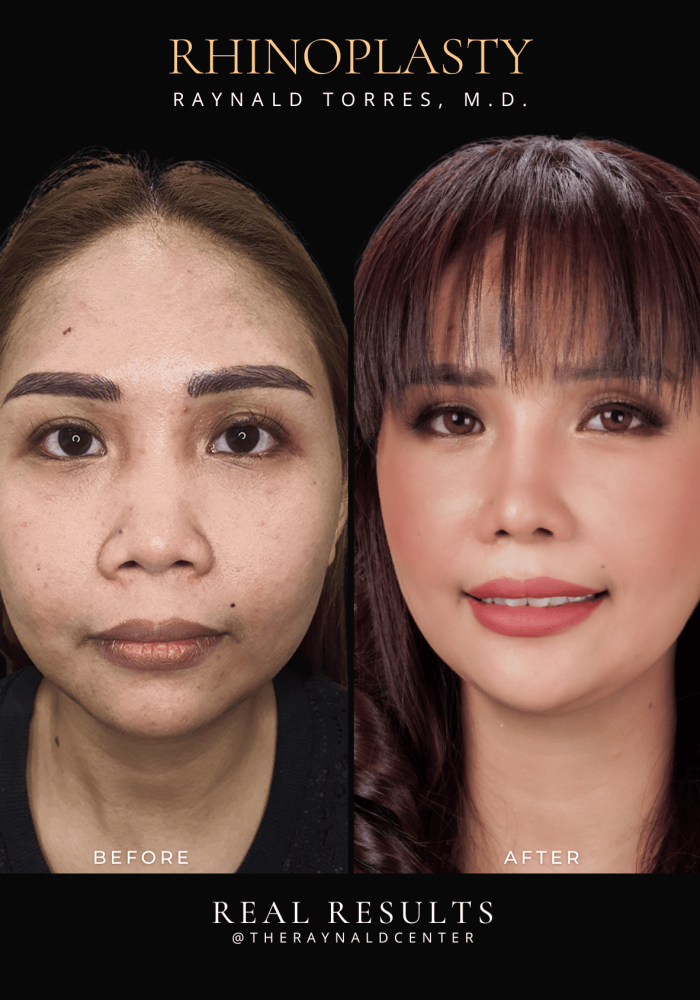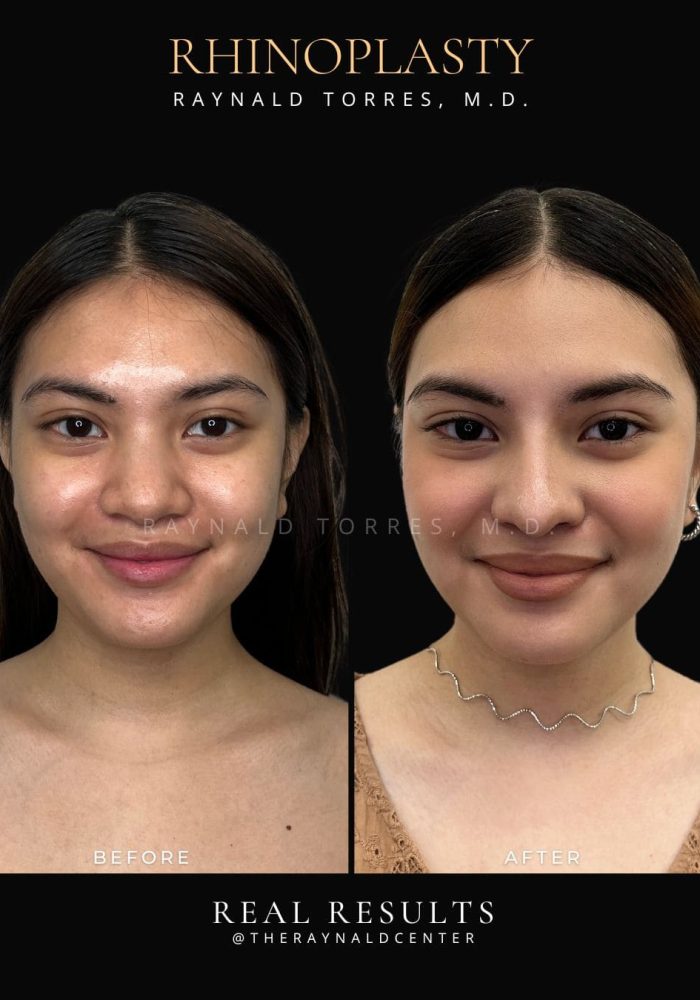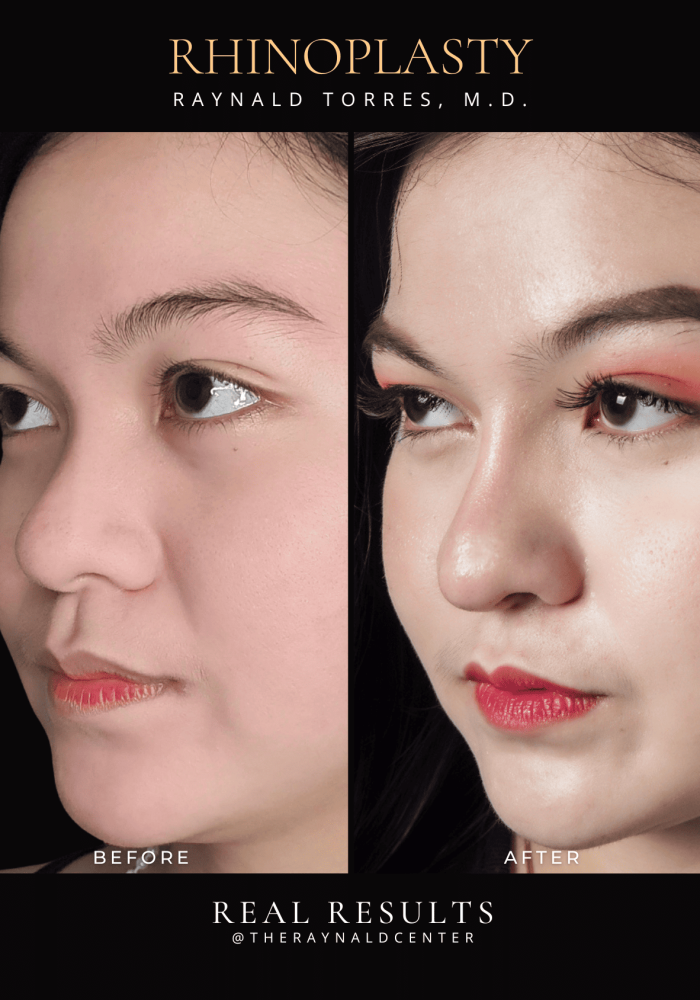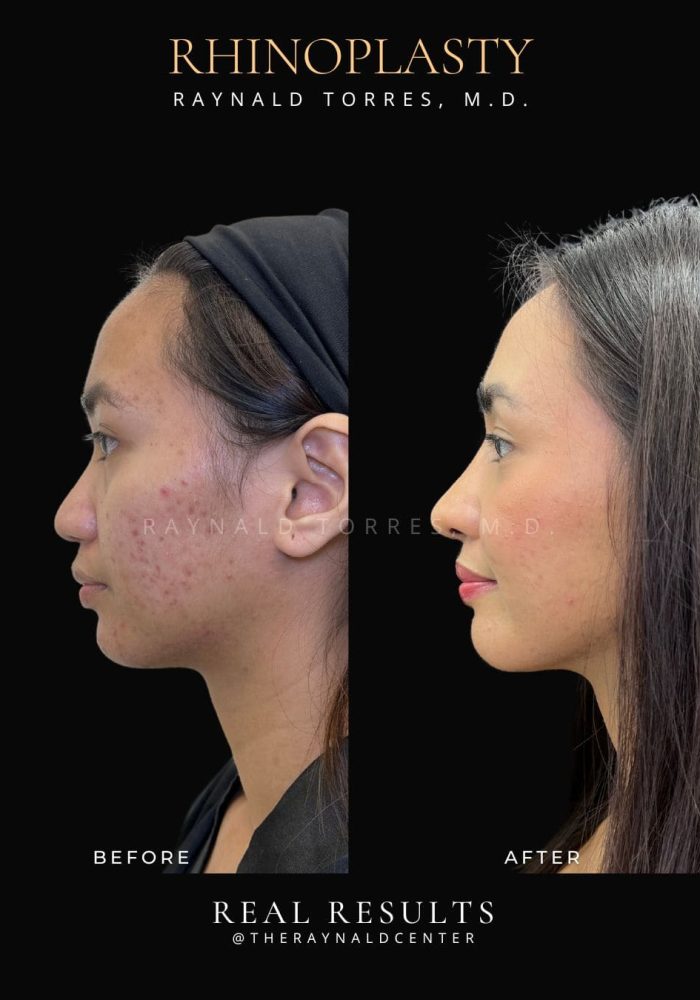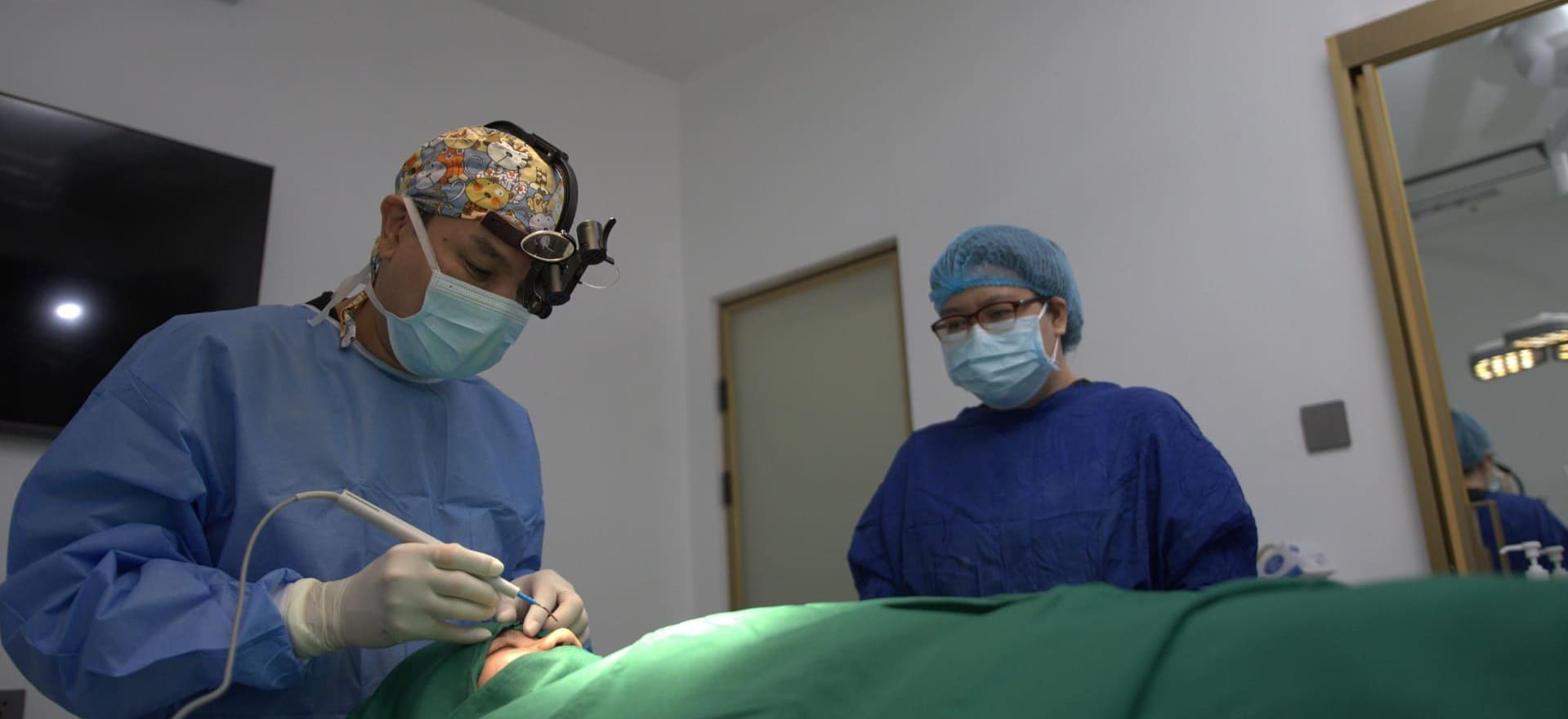
Revision Rhinoplasty - Implant Removal And Reconstruction
BEFORE AND AFTER
videos
What is Revision Rhinoplasty?
Revision rhinoplasty is a complex procedure aimed at correcting undesirable results from previous nose surgeries. Patients often seek revision rhinoplasty due to poor cosmetic outcomes, such as over-correction, under-correction, or asymmetry, as well as functional issues like breathing difficulties caused by nasal valve collapse or a deviated septum. Another major reason for revision surgery is the presence of infection or rejection following the initial procedure. This can lead to tissue damage, scarring, or deformities, necessitating surgical intervention to restore both appearance and function. Additionally, complications from silicone implants, such as implant malposition, can result in unnatural contours or visible deformities, requiring revision surgery to reposition or remove the implant and restore the nose’s natural form.
Each revision rhinoplasty is unique and requires a personalized approach. As no two noses are alike, it is important to cater the procedure to the specific needs of the individual patient. Depending on the nature of the problem, a variety of reconstructive techniques may be employed. These can include dermal grafts, septoplasty, nasal valve correction, flaps, and other specialized procedures designed to fix what needs to be restored. This personalized approach ensures that every aspect of the nose, both aesthetic and functional, is considered in the surgical plan.
The challenges of revision rhinoplasty are greater due to the altered nasal anatomy, often compounded by the presence of scar tissue from the initial surgery. Surgeons must carefully navigate through this tissue to avoid causing further damage. In many cases, cartilage support is compromised, and additional grafts—sometimes taken from the rib or ear—are necessary to rebuild and refine the nose. The goal is always to achieve a natural-looking result that enhances facial harmony while also improving breathing function.
Whether the revision is required due to cosmetic dissatisfaction, silicone implant malposition, infection, graft rejection, or a combination of these factors, revision rhinoplasty requires a high level of skill and experience. A variety of techniques, including reconstructive methods, is essential to restore and enhance the nose. With years of expertise and a broad range of techniques at my disposal, I can ensure that each revision is approached with care, precision, and a focus on the unique needs of the patient. The result is a nose that is not only beautiful but also functional, providing a lasting improvement in both appearance and breathing.
Pre-Procedure Guidelines
Preparing for revision rhinoplasty is essential to ensure a smooth surgical experience and optimal healing. Please follow these pre-operative instructions closely:
1. Medical Clearance & Surgical Planning
Attend all scheduled consultations to discuss your previous surgery, current concerns, and surgical goals.
Complete all requested pre-operative lab tests and imaging studies.
Inform your surgeon of all current medications, past surgeries, allergies, and any underlying health conditions.
2. Medications & Supplements
Avoid medications and supplements that can thin the blood (e.g., aspirin, ibuprofen, vitamin E, fish oil, and certain herbal remedies) for at least 10 days prior to surgery, unless directed otherwise.
Continue prescribed maintenance medications unless advised by your surgeon.
Do not take any new medications or supplements without prior approval from your doctor.
3. Smoking & Alcohol
Discontinue smoking at least 4 weeks before surgery. Smoking interferes with blood flow and significantly delays healing.
Avoid alcoholic beverages for at least 48 hours before your scheduled procedure.
4. Fasting Before Surgery
Do not eat or drink anything (including water) after midnight the night before surgery, unless instructed otherwise by your anesthesiologist.
If you are scheduled for afternoon surgery, follow your anesthesiologist’s specific guidelines.
5. Day of Surgery Instructions
Arrive at the surgical facility on time with a responsible adult who can drive you home and assist you afterward.
Wear loose, comfortable clothing that opens at the front. Avoid wearing pullovers.
Remove all jewelry, piercings, makeup, nail polish, contact lenses, and false eyelashes.
6. Prepare Your Recovery Area
Set up a clean, quiet recovery space at home where you can rest with your head elevated.
Have cold compresses, medications, soft foods, and wound care supplies ready in advance.
Post Procedure Guidelines
Swelling & Bruising
Swelling and bruising on the face and nose are expected and usually begin to subside within 2–3 days, gradually improving over time.
If you have ear dressings, you may remove them after 24 hours, unless otherwise instructed.
Activity Restrictions
Avoid heavy lifting, bending, or vigorous physical activity for 2 weeks post-surgery.
No contact sports or impact-related activities for 3 months, unless cleared by your surgeon.
Swimming is prohibited for 6 months, unless otherwise permitted.
Refrain from wearing glasses or sunglasses for 3 months to avoid pressure on the healing nasal structure.
Cold & Warm Compresses
Use an ice-cold compress for the first 48 hours to minimize swelling and bruising (avoid direct pressure on the nose).
After 48 hours, transition to a warm compress until swelling subsides.
Apply the warm compress for 20 to 30 minutes, 3 times a day, or more frequently as needed.
Hygiene & Sun Protection
Take a half-bath and wash your hair in a salon-style manner, or ask for assistance to avoid getting the surgical area wet.
Clean incision sites gently with distilled water on cotton or cotton buds, then pat dry.
Avoid direct sun exposure to the nose for at least 6 weeks to prevent discoloration and complications.
Medications & Healing
Take all prescribed medications as directed.
Complete the full 7-day course of antibiotics, even if symptoms improve sooner.
Continue any maintenance medications unless told otherwise.
Do not take any additional medications or supplements without consulting your surgeon.
Avoid alcohol for at least 48 hours while taking pain medication.
Refrain from smoking, as it can delay healing and increase the risk of complications.
Infection Prevention & Warning Signs
Infection may occur weeks or even months after surgery. Contact us immediately if you experience any of the following:
Abnormal discharge (pus, foul-smelling, thick bloody, yellow, or green fluid)
Redness, warmth, or increased pain around the nose
Fever, chills, or general feeling of illness

